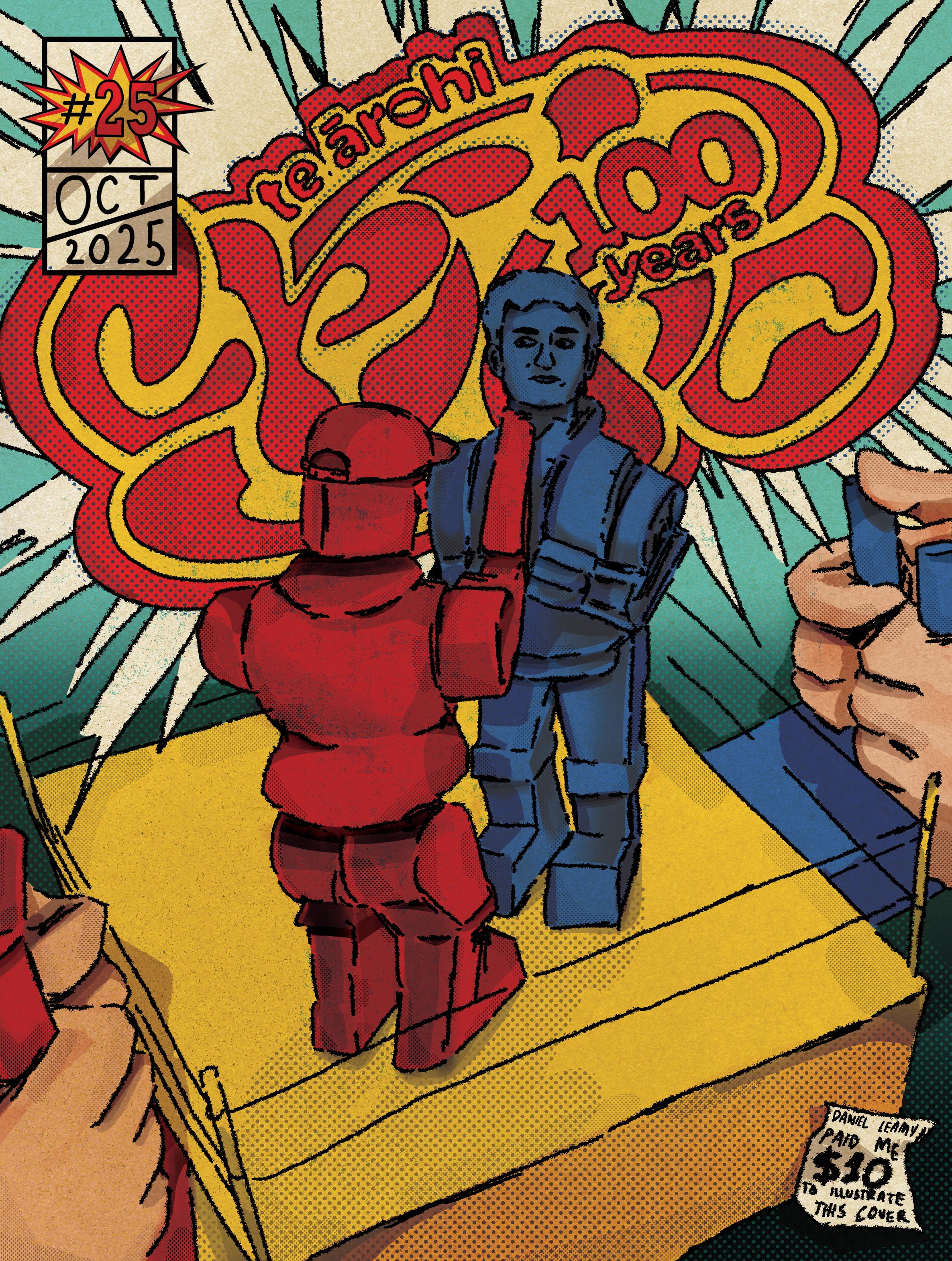
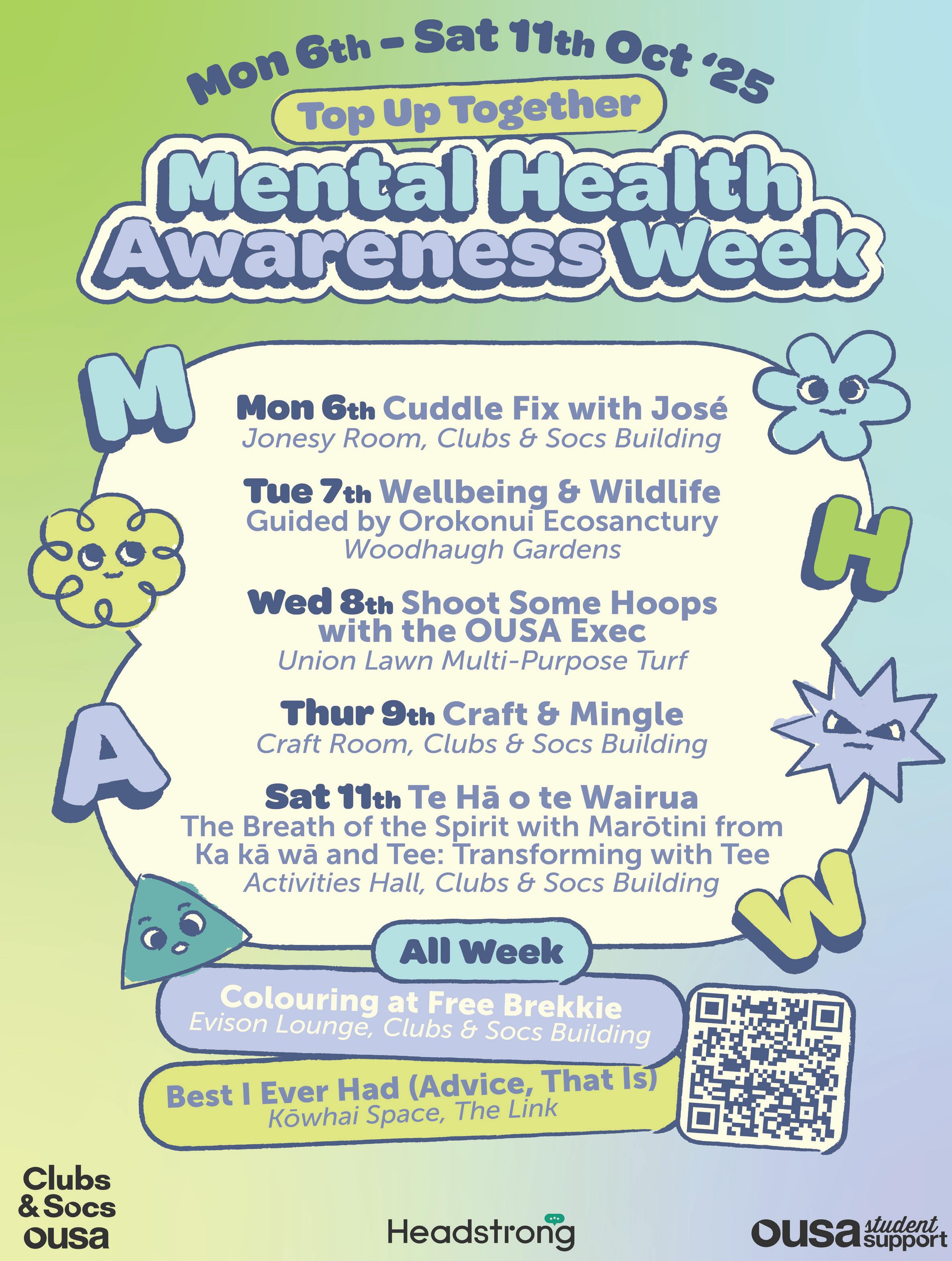
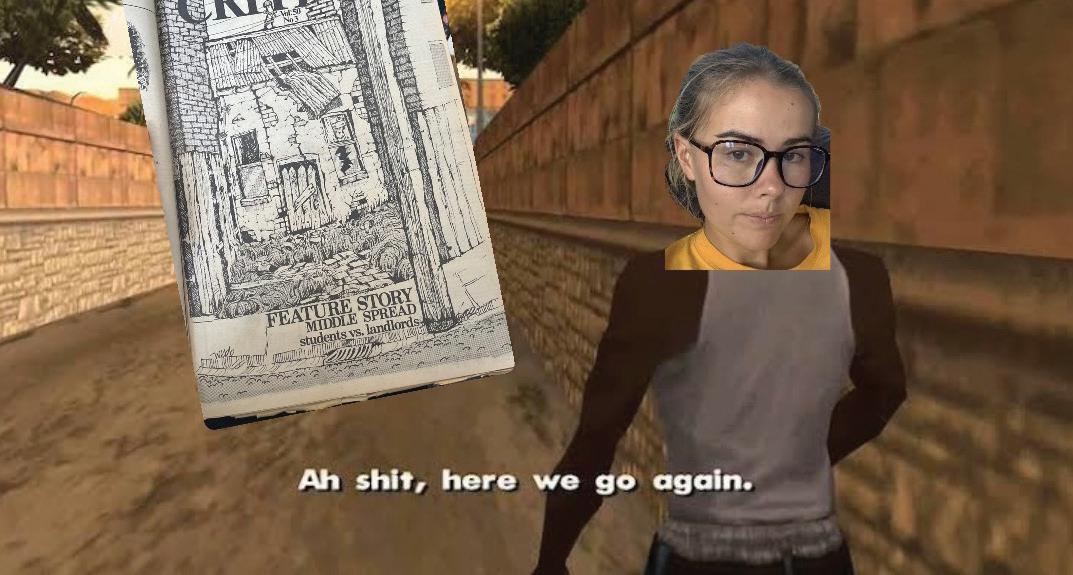




Cars can be dangerous to your wellbeing. If they have a dodgy wheel bearing, thin tyres, a cracked windscreen or a dying battery, they don’t pass their warrant of fitness. It’s too dangerous to drive. Before you’re allowed to have your car on the road, you have to fix the sub-standard parts. These checks are done annually for the health of all. It makes a lot of sense – so why can’t we do the same for flats?
The shitfuckery of student housing has been a hot topic this year. Newly elected 2026 Residential Rep Zoe Eckhoff’s horror story with a notoriously awful landlord gained widespread media coverage and the attention of local government candidates. I almost gagged when she showed me pictures of the yellow fungus bulging out of one of the walls. I recognised the name of the landlord, too. This was a landlord who had doxxed and harassed Critic staff in 2019 when they reported on her having gone to the Tenancy Tribunal 31 times in the space of three years.
Zoe’s story is a particularly bad one but it’s also nothing new in Dunedin. Landlords don’t care about the health of their tenants. They aren’t incentivised to. It’s an investment. A business. And students are the cash cows, their suffering wellbeing a minor concern, and the Tenancy Tribunal has proven to be ineffective in stopping it. Students are constantly sick as a result of mouldy, damp homes that they’re overcharged for, rendering them too poor to heat them properly. Worse still, they’re gaslit by exploitative landlords into thinking that’s a “rite of passage”. It’s psychotic.
Politicians have attempted to address this before. First came Healthy Homes standards in 2019, which set minimum requirements for heating, insulation, ventilation, moisture, and drainage. Good in theory, but the standards haven't quite worked – they’re not very enforceable, and the onus is on students to complain to the Tenancy Tribunal if their flat isn’t up to scratch. July 1st was the deadline for having made improvements to flats, and as Zoe pointed out during her campaign, many put their properties up for sale when that deadline hit.
Zoe campaigned on a rental WoF as a
renter-friendly alternative, a solution that the Green Party has been pushing for years. A Stuff article from 2021 quoted Chlöe Swarbrick's passionate appeal – and in 2025, she is still fighting for it, having spoken to Critic about it in July. Back then, critics argued that any rental regulations should wait until the standards were fully phased in. Now is that time. Thanks to Zoe, students’ plight has been front and centre in local body election campaigns.
In this issue’s local body elections pull-out magazine, candidates were asked for their positions on ten different student priorities agreed by the OUSA Exec. The rental warrant of fitness received some of the biggest support across the board – except for the Court of Saint Pamela, who simply responded “no” to every question except one.
It was heartening to read the thoughts of council candidates on this issue. One put it especially well, “Yes, absolutely—everyone deserves a warm, dry, healthy home, and students are no exception. Landlords in Dunedin have for too long exploited the idea of the ‘student experience’ to justify high rents for substandard, often unliveable accommodation. A rental warrant of fitness would help ensure all properties meet basic health and safety standards, protect tenants’ rights, and hold landlords accountable. It’s a crucial step toward fairer, healthier housing in our city.”
With the new Residential Rep for OUSA and local government candidates strongly backing a rental WoF, something might just improve in an issue that’s wracked the Otago student body for decades (there’s an issue of Critic from the ‘70s that depicts the same derelict state of housing). But there’s hope. We’re in a position where we might have the right people in power to do something about the plague of housing in Dunedin. This is the last week to vote in local government elections. Students are being poisoned by their homes, and it needs to end. Vote.
NINA BROWN
Kia Ora Critic,

Hail to the new President! It's rather mind-boggling no one thought to bring up that Daniel was LITERALLY SCAMMED last year by an email pretending to be Keegan (the previous President). You'd think that would be a bit of an indictment on his competence! Maybe folks thought it was just a bit too rude to bring it up. But that's politics, baby! Would be nice if Critic could reupload the article explaining this embarrassing incident.
Best of luck to the new exec, and keep a close eye on Daniel's emails!
Neave
Editor’s response: My two cents: everyone makes mistakes and Daniel has proven himself to be more than competent since this happened a year ago.
Send letters to the editor to critic@critic.co.nz to be in to win a $25 UBS voucher.
Hi Critic,
This shouldn't bug me this much, but the line in the Issue 24 editorial "Like falling into an algorithm of videos about Charlie Kirk..." does not make sense. I believe the phrase you were looking for was 'rabbit hole', but I get you used 'wormholes' in the previous sentence.
You can't fall into an algorithm; you fall into a stream of videos curated by some algorithm.
It is like saying ''Like falling into a Google of answers" or "Like falling into a Spotify of music".
All the best, Semantic Debugger
Editor’s response: You’re right, I would have used rabbit hole but repetition is a pet peeve of mine. By “falling into an algorithm”, I’m referring to niches of Instagram Reels or TikTok that people stumble into like ‘BookTok’. Colloquially, I’d argue that an “algorithm” in that
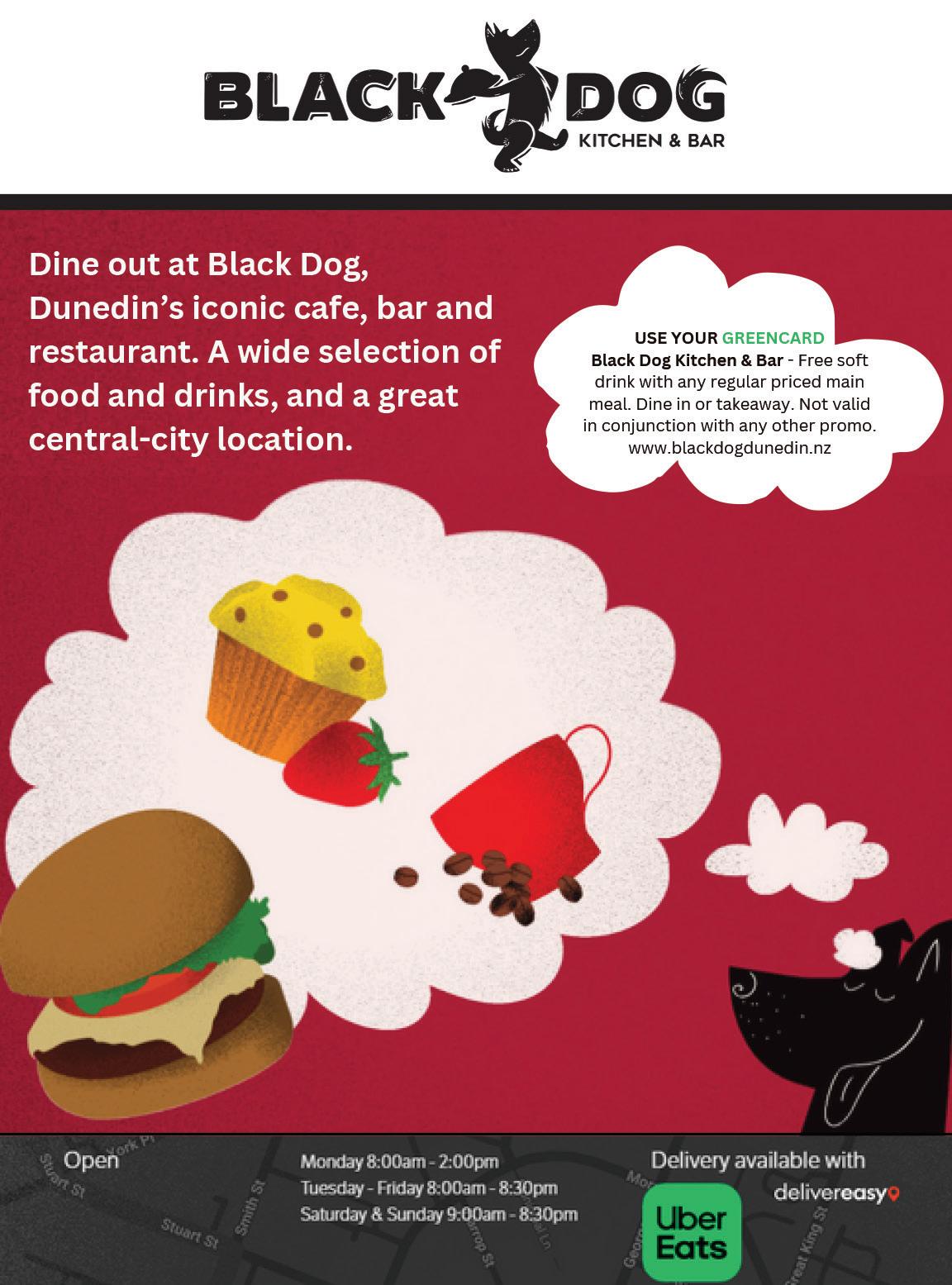
sense means the category of videos your feed becomes clogged with. Technically, yes, it’s“a stream of videos curated by some algorithm” but that doesn’t roll off the tongue quite as well
In this issues crossword, clue 53 across is Feet-up sofa (2). Surely the answer is chaise lounge and if so, how did whoever wrote the cross word clues spell it because their spelling is different to googles spelling. or maybe i cant spell who knows anyways send help love u lots
Editor’s response: Okay so I thought that it was spelled that way, too. Turns out, it can either be spelt “chaise lounge” (American) or “chaise longue” (UK).
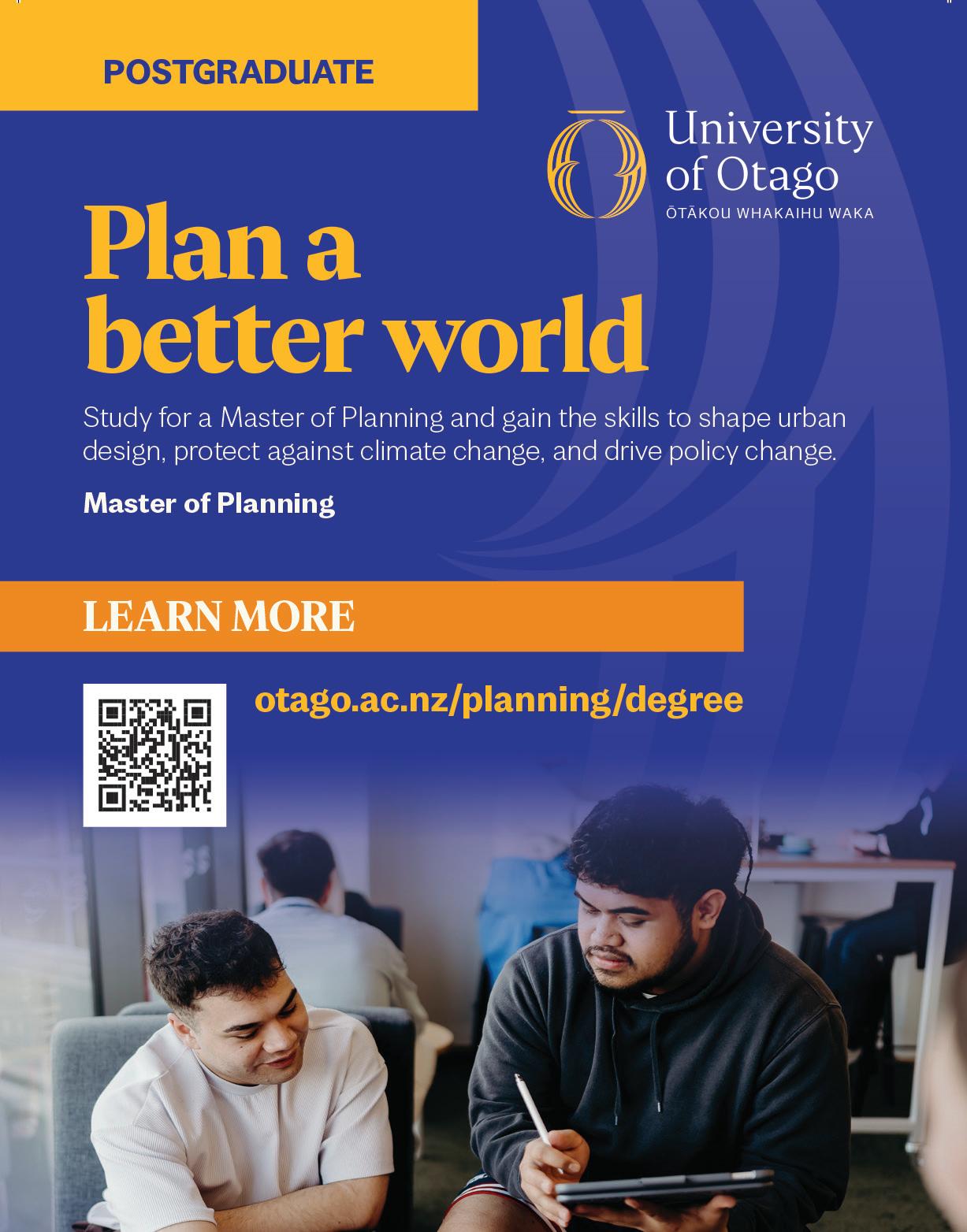
Renowned Kiwi clinical psychologist Nigel Latta has died after a battle with cancer
Toitū Te Tiriti has cut formal ties with Te Pāti Māori over “leadership concerns, a clash of values, and the need for independence”, RNZ reports
Victoria University is putting its domestic tuition fees up next year to the maximum amount of 6%. Other universities are expected to follow
Universities have given up using software to detect AI in students’ work, RNZ reports
As students prepare for flat moving season, the Dunedin Night Shelter is receiving donations of good quality clothing, bedding and blankets, and other practical household items. You can find them at 18 Lees Street, Central Dunedin
Dunedin band IVY has yet again had another artist’s music uploaded to their Spotify, with a whole EP called ‘ELEGANT ECHELON’ appearing mere days after Critic reported the first mistaken song appearing
The 2025 Dunedin Writers & Readers Festival is fast approaching, taking place on October 17th-19th. You can check out the programme on their website (dunedinwritersfestival. co.nz)
Groundbreaking conservationist Jane Goodall died last week, aged 91. Tributes poured in from around the globe for the woman who devoted her life to the study and conservation of chimpanzees and other apes
The Spinoff claims to have “cracked the code” of youthfocused journalism with the success of Now You Know, a short-form explainer series blending facts and humour, that’s earned 2.5 million views in its first two and a half months
Kiwis onboard a flotilla ship were intercepted by Israeli forces last week, one of many bound for Gaza with humanitarian aid, RNZ reports
It’s the last week of voting for local elections! Voting closes this Saturday, October 11th
Foreign Affairs Minister Winston Peters’ recent decision not to recognise Palestinian statehood, announced at the UN General Assembly in New York, has triggered widespread criticism back home. More than 80% of UN member states have recognised the State of Palestine, including Australia, Canada, and the UK
Wikimedia will be running drop-in sessions in the Central Library this October for students and staff to learn about editing and engaging with Wikipedia, hosted by Otago’s Wikipedian in Residence Dr Tamsin Braisher
Quarter 3 Wrapped: Part I 6
As Usual” OUSA Budget Dropped 7
Proposes Switch To Telehealth Student Health Services 8
Have Brought the Noise 9
DJ Decks and a Dream 10
for All’ Roadshow Hits Ōtepoti 10
14
16
So many words and reports we had to split it into two parts
In the blink of an eye, quarter three wrapped up at OUSA at the end of August. With everything from scandals to elections dominating headlines, the Exec has still been hard at work serving students’ interests. While it's impossible to cover everything, here’s a taster of what the Exec has done in order to get their honorariums (AKA their pay) this quarter. With over 23,000 words and twelve reports to trawl through, Critic Te Ārohi has the recap (minus the bureaucracy-induced headache).
Q3 Average Hours - 31.92/40
It was another jam-packed quarter for OUSA’s President. Continuing to be the face of the association, he was featured in the Otago Daily Times five times and Critic four times. Liam has engaged with local politicians, having recently met with the mayor to address Castle Street’s waste and student housing concerns. Impressively, he fired off 22 different letters to MPs and Ministers over issues such as paid placements, trains, and a postgrad student allowance. For OUSA, he spoke on behalf of them at a forum about homelessness, and is planning events to foster a stronger relationship between Uni and Polytech students.
Despite being a busy bee, Liam and the team haven’t been able to make progress on all they set out to achieve. “Most of the campaigns seems to have fallen by the wayside as the team works to prioritise what is both most important, and can be feasibly achieved over the next couple of months,” he said. Another factor could also be the palpable tension within the Exec lately. Since Q2, however, Liam reckoned it had chilled out. “Credit where it is due, I think the Executive has been much better at sitting around the table,” he said. “It feels far less tribal now. I think we can still do some work on building and developing consensus, but it is hard when we have so much business to cover.”
At last week’s Exec meeting, however, a few concerns were raised over Liam’s report. The Exec acknowledged Liam prioritising his mental health as a reason for not meeting his 40 hours, but a few members had concerns. Seluvaia (President of UOPISA) also pointed out Liam’s lack of engagement with UOPISA. He’d failed to show at the UOPISA Awards Night as promised, and she said this was a continuing trend from other quarters. Finance and Strategy Officer Daniel also noted, “Liam has missed some very important meetings this quarter.” Based on this, the Executive voted to reduce Liam’s honorarium by 10% over the next month.
Q3 Average Hours - 20.88/20
Amy has wrapped up a sleepless quarter three by nearly finishing all the policies for OUSA’s “behind the scenes stuff”, including an updated constitution for their upcoming AGM. Amy’s been integral to the organisation of the recent Exec elections alongside OUSA Secretary Donna. Outside of this, she’s met with six committees, continuing to work on a ‘safe streets’ campaign, and has been in comms with the Sustainability Office and Te Oraka. Amy seemed proud of her “near-perfect” attendance record in Exec meetings, but did note that balancing the workload is “no longer in [her] vocabulary”. “I hope to one day figure it out, but for now I will continue to suffer with my devastating lack of limits,” she said.
The Exec were pleased with Amy’s efforts over the big quarter
By Gryffin Blockley News Editor // news@critic.co.nz
she’s had. Liam noted that he was “not overly comfortable with her work life balance at the moment” as a result (she consistently got four hours sleep during election week). Daniel said Amy had worked “exceptionally hard,” while Seluvaia thanked her for being the “bridge” between UOPISA, Te Rōpū Māori, and the Exec this year. Political Rep Jett did raise, however, that he didn’t find his weekly catch-ups with Amy very “productive” –perhaps owing to her having sought his resignation, and him refusing. Ultimately, the Exec unanimously agreed to accept the report and give her the full honorarium.
Q3 Average Hours - 17.73/20
Quarter three has seen “great engagement” with social and welfare issues with students for Amy Whyman. Key projects have been HIV-test kits on campus, proper use of OUSA-run rooms on campus, and the Sophia Charter Action Plan. Amy mentioned the Welfare Committee, however Clubs and Socs Rep Deborah pointed out that they’d only met one time this year.
Amy’s helped out with other Exec initiatives this quarter, including chalking campus to support Academic Rep Stella’s lecture recordings policy and running a Re-Ori stall. In her advocacy, she attended meetings with an impressive 11 different committees or working groups; including a meeting with the Disability Issues Advisory Group to discuss disabled tauira’s welfare on campus. Before her term is up, she is shaping up a future campaign to advocate for College Subwardens, and has recommendations ready to present to the Uni over its special considerations policy. Amy acknowledged that she was under hours this quarter, but explained, “I was away with my family and dubious Wi-Fi for two weeks, which is the main contributor for the lower average.”
When the Executive approved these reports at last week’s Executive meeting, it was noted Amy W has been under her 20-hour target for all three quarters this year. Noting a conflict of interest as her flatmate, Liam argued against cutting her honorarium by saying that he didn’t want to “tie Exec roles to their hours,” prompting disagreement from multiple Exec members. Ultimately, the Executive voted to cut her honorarium by 10% for the next month.
Average Hours - 9.6/10
The University’s shock reduction in doctoral scholarships was the dominant issue for Josh in Q3. Josh had raised concerns over the cuts to the ODT, Graduate Research Committee, and the University Senate over this, managing to help get a mini-round of 15 scholarships in October. “I like to think that this policy change came about as a direct result of everyone’s pushback, which is something to be proud of,” he said.
Josh noted that turnout and engagement for the Society for Postgraduate Students continues to improve. He also sits on ten committees and helped ‘hall-bash’ to promote voting in the Local Body Elections. Josh aimed to build a stronger relationship with our Ōtautahi/Pōneke campuses; increase engagement with Commerce Postgrads; and is helping to organise the upcoming Supervisor of the Year awards in Q4.
When approving his Q3 report, Josh apologised that family things
have gotten in the way of duties this year, the “one time” he’d been successful in being elected. The rest of the Exec sang Josh’s praises though, with Daniel calling him “super helpful” with the Political Action Committee. Liam also appreciated Josh’s efforts to increase his hours since the last two quarters. Overall, Josh’s report was accepted and his honorarium will be paid in full.
Quarter three has had an adjustment period, with Pourourangi having assumed the role as the sole tumuaki of Te Rōpu Māori (TRM) following Ngātiki’s resignation earlier this quarter. Pou has sat on seven OUSA committees, worked on TRM’s strategic framework, and signed a memorandum of understanding with Te Huka Mātauraka (the Māori centre). Furthermore, there was lots of prep for Te Huinga Tauira (the national Māori Students’ Conference); helping TRM become Radio One trained; and releasing a TRM EP. There has been good engagement with TRM in Q3, according to Pou, with events such as the first session of Poipoia Te Kākano (governance/leadership programme Māori student execs), a ki-o-rahi charity event, and hui with the Deputy
Vice-Chancellor (Māori), and student pastoral care. The Exec acknowledged his efforts of stepping up this quarter, accepting his report with zero issue.
Selu has wrapped up yet another busy quarter, representing UOPISA on nine different committees around the University. Herself and other UOPISA Exec members sit on a number of OUSA committees, too. Selu ran a Pacific workshop for OUSA staff, and has been encouraging more people to run for the UOPISA Exec as that time of year approaches. For current projects, a 2026 Equity Fund proposal in the works, as is the ongoing task of finding a permanent space for her exec. On the administrative side of things, Selu has been restructuring UOPISA policy to be more similar with TRM’s/OUSA’s, as well as trying to get UOPISA a seat on Uni Council. No issues were raised with Seluvaia’s quarter three report in an Exec meeting three weeks ago – the Exec called it “great”.
TL;DR: Inflation is a thing and Critic 2026 will look a bit different
OUSA’s budget for 2026 has dropped. You might read “budget” and feel your eyes glaze over. But just as your budget is crucial to stretching StudyLink payments across keeping a roof over your head, avoiding scurvy, and storing away a little extra for baristamade treats or a box on the weekend, OUSA’s budget is the blueprint for what they’re able to do. A financially illiterate Critic Te Ārohi tugged on the sleeve of Finance and Strategy Officer Daniel Leamy for the breakdown.
Despite the efforts of OUSA’s different departments (Critic Te Ārohi included), its operations beyond cooking up snags on Union Lawn and campaigning student politicians remain a mystery for many. OUSA is a not-for-profit organisation responsible for providing advocacy and services essential to student life at the University of Otago. As an example, Daniel pointed out that thanks to Clubs and Soc’s free breakfasts, $4 lunches, and $5 Bowling Club dinners, students can feed themselves for just $9 a day – a vital service in a cost of living crisis.
The majority of OUSA’s funding comes from a Service Level Agreement (SLA) with the University. OUSA and Otago Uni enter annual negotiations over the pool of money sourced from students’ Compulsory Student Services Fee (CSSF) – that $1,152 you paid for Uni services like UniPol and Student Health. The SLA forms the basis for OUSA’s budget the following year, supplemented by additional income from side hustles like event ticketing (O-Week, for example), ad sales (many found in Critic), building leases, and commercial entities like the Dunedin Craft Beer and Food Festival.
As Finance and Strategy Officer, Daniel was heavily involved in negotiations informing the OUSA budget for next year, which have now concluded. He seemed like a happy lad when Critic caught up with him. Thanks to a good relationship OUSA has built with the University (they can’t resist that brat green), the association is getting $521k more money from the SLA. “Negotiations were actually really favourable for us,” said Daniel, explaining that Uni staff acknowledged how crucial OUSA’s
services were to students (naw).
By Nina Brown Editor // news@critic.co.nz
The 2026 budget is largely “business as usual” for OUSA. Any increases mainly account for inflated costs, proportional to that department’s current budget (he whipped out a calculator to demonstrate his sick accounting skills to prove it). Just two departments’ budgets are decreasing: the Exec, and little old Critic Te Ārohi.
Like most students over the summer break, the Exec tend to ditch Dunners after exams and are too busy killing brain cells at festivals and sipping G-and-Ts with the fam to fulfill their hours. Rather than kidding themselves that they’ll work over the break, the Executive budget will decrease by $29,196 to reflect the zeroed summer hours. A decrease to the President’s honorarium is included in this number to account for University Council remuneration (yep, it’s paid); work that has been “double dipped” with President pay.
Critic Te Ārohi’s reduction in budget is owed to a change in printing next year – paper is incredibly expensive. Typically printing a weekly 36-page magazine, Critic in 2026 will be switching to an asymmetrical print calendar. Every fortnight, there will be the magazine students know and love. On the alternative weeks, there will be a 16-page mini-mag including news, puzzles, and artwork – everything that keeps the casual Critic reader coming back each Monday.
The OUSA Budget will soon be available on their website. Students are invited to the Annual General Meeting on October 23rd at 12:45pm in the Main Common Room to provide feedback on the budget and approve it. This will be during exam period, meaning that it’s in breach of their constitution, something they hope will be remedied at the AGM through a special motion. This was necessary since the AGM will also be covering a constitutional reform that OUSA’s lawyers require a couple of weeks to review. Kai and giveaways are promised to students who attend.
On the 26th of September, the Otago Polytech advised kaimahi, ākonga, the Otago Polytech Students Association, stakeholders, and the media (except for Critic – we found out through a student) of a proposal to move to a telehealth set up for their student health provision for the 2026 academic year.
Telehealth refers to delivery of health services digitally, rather than in person. The proposal is in response to the growing diversity within the Polytech’s learner population, a large percentage of which are distance learners. “[We] need to ensure we are operating sustainably and providing a timely and accessible health service for all our learners,” said Shaun Tāhau, Deputy Executive Director of Learner Experience and Partnerships.
Approximately one third of the Polytech’s ākonga are distance learners who are currently unable to access the in-house Student Health service at the Dunedin campus. The pressures of financial sustainability were also front-of-mind. “Unfortunately, our current model is not financially sustainable,” Shaun said in the media release.
The proposal is currently still in the consultation stage with kaimahi and ākonga. Approval would mean that the Polytech’s Student Health service would move to an online telehealth model provided by Pocket Lab, an online health service established by GPs. If the proposal goes ahead, current distance students would be given the choice of opting out of this service from January 2026. New distance students would pay for the service through their Student Services Fee.
Dave Goosselink, the Otago Polytech’s Senior Public Relations Communications Advisor, told Critic Te Ārohi that the proposal to shift to an online telehealth service is “aimed at providing learners with a broader range of healthcare services than [the Polytech] can currently offer” with their in-house services. Currently, the Polytech’s student health service is limited to weekdays from 8:30am - 5pm, with appointments available 9am - 4:30pm. Pocket Lab would allow ākonga to “quickly and easily” book same-day appointments themselves from anywhere in Aotearoa, between 8am and 10pm, 7 days a week, as opposed to calling ahead for an appointment.
The vast majority of Pocket Lab’s telehealth appointments are resolved fully online, with fewer than 2% of these appointments converting to a further in-person referral. The small number of learners who do need to be referred on for a physical appointment would go to the Urgent Doctors, where the Polytech currently refer learners when Student Health isn’t available.
One design student at the Polytech, Stella, could understand both sides of the decision. She said, “Going online would be super helpful for distance students.” However, from her personal experience, “There’s nothing like having a face to face check up with a professional whether – whether it's Student Health or not.” Stella also noted her concerns about misdiagnosis being more “prevalent” if online care was the only offering.
By Hanna Varrs Features Editor // features@critic.co.nz
The Pocket Lab telehealth model is already used by a number of other tertiary institutions across New Zealand, such as Unitech and NorthTec, who “rate the service highly in terms of access and experience,” Dave told Critic. The discontinuation of the Dunedin Campus’ in-house Student Health services would result in disestablishing 4.77 full-time equivalent staff. “We are ensuring kaimahi are offered continual support during this process,” Dave explained. Otago Polytech had initially explored opportunities to integrate their healthcare services with that of Otago University’s Student Health, but initial investigations found this integration would be “very complex”.
Pocket Lab also offers a variety of doctors from diverse specialties and backgrounds, which has the potential to improve services for the likes of our Māori, Pasifika, and diverse students. “The broader range of specialists would also strengthen [the Polytech’s] ability to uphold legal obligations around the Pastoral Care Code,” Dave added. Polytech leadership has met with the Student Health team and OPSA to explain the proposed changes and the process the Polytech will follow to seek feedback.
Otago Polytechnic Students’ Association (OPSA) Co-Vice President Lemon Hay commented to Critic Te Ārohi that the OPSA board has “mixed views” on the proposal. They acknowledged that the current Student Health system doesn't fully cater to distance learners, and is running at a “deficit” – a big issue presently due to the disestablishment of Te Pūkenga, a national network for all the country’s 25 polytechnics and industry training organisations. Pocket Lab would also allow the Polytech to “scale the service” based on student numbers, paying for healthcare in direct relation to enrollment numbers. But on the other hand, Lemon also expressed concern over more job redundancy, which would just add to the list of losses experienced by Polytechs recently.
Lemon noted it is currently “unclear” whether Otago Polytechnic would cover referral fees to in-person care if something cannot be resolved online or over the phone. Given telehealth services cannot provide real-time, in-person healthcare services (blood pressure, STI testing, vaccinations), OPSA were worried that this may end up either costing students more, or “clog up” Urgent Doctors with “non-urgent health needs”. Both Lemon and healthcare staff they’d spoken to still find the change “discouraging”, and are left wondering how “in real life” health needs will be met, and if going online will create “barriers to services later down the road.” As it stands, the Otago Polytechnic has indicated that it will look to contract in nursing services for key campaign drives including immunisation and sexual health.
When approached by Critic, a University of Otago spokesperson said that while they cannot speak on Otago Polytech’s behalf, they confirmed that University Student Health would not be affected by the proposal. “There is no anticipated impact on the University’s Student Health Service as it only serves University of Otago students who are enrolled on the Dunedin campus and pay the Compulsory Student Services Fee,” said the spokesperson.

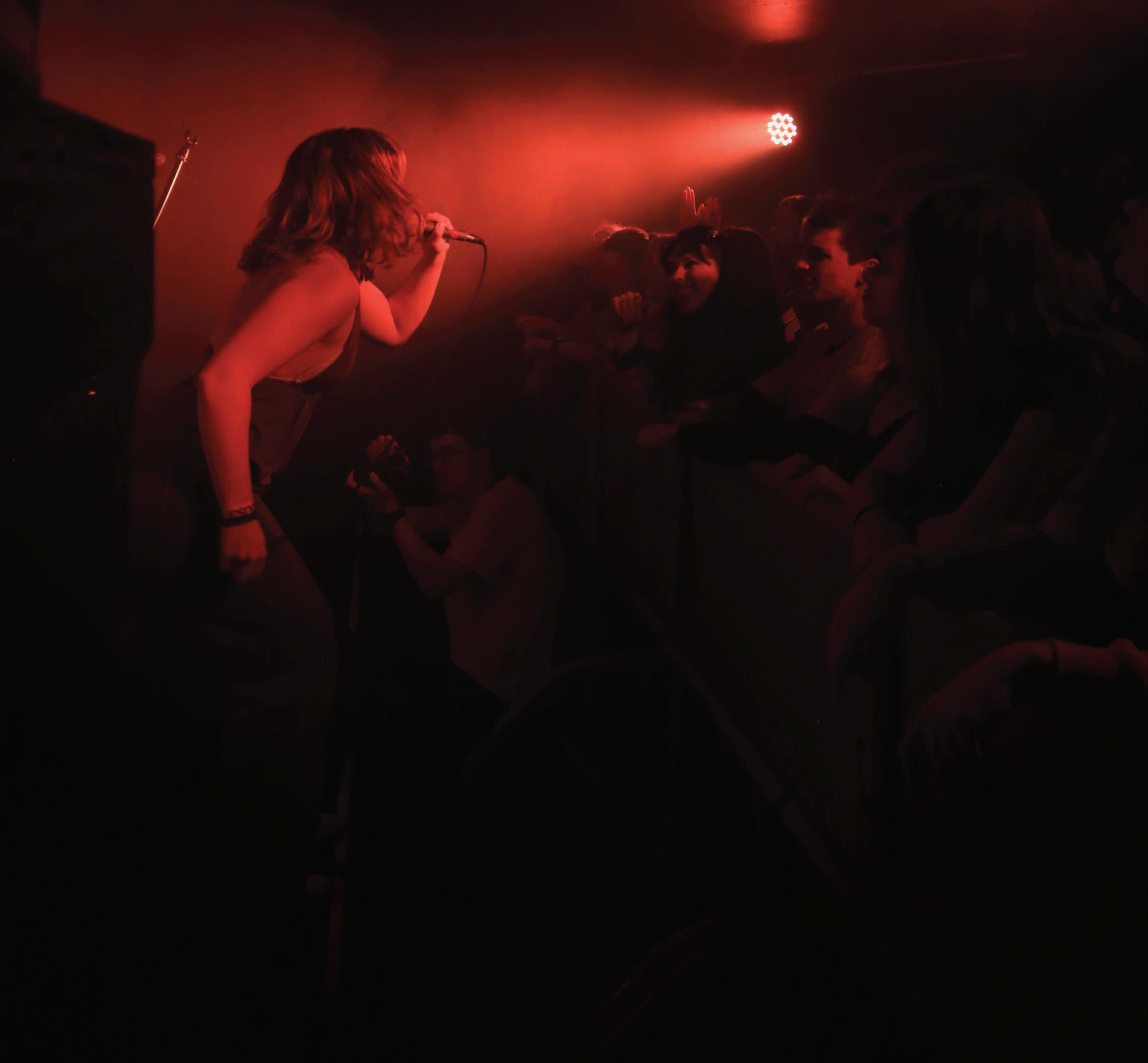
by
Raise a ($7) pint to the rising stars of the Dunedin Sound
OUSA’s annual band competition, Bring the Noise, wrapped up its seventh iteration at U-Bar last week. Presented by Radio One, the competition involved two heats and a final where Ōtepoti bands battled head-to-head, playing only original songs. Last Wednesday, Ammonita took out the title for 2025, and fellow bands Cleos and FÜBAR! snagged second and third place respectively. Critic Te Ārohi sat down with the newly-minted champions to hear about their journey to the U-Bar stage.
Ammonita is a five-piece band made up of second-years Paige Sumner, Karl Young, Zoe Eckhoff, Iván Fernandez, and Mason O’Connell. Three out of the five members study Ecology, so it's no surprise their band name was born out of the poisonous ‘Amanita’ genus of mushrooms. Paige and Zoe went to halls together, and other members were brought in through mutual friends and their courses to form Ammonita as we know it today. The five of them have all played each other's instruments (or are planning to), to the point Critic found it too confusing to label who played what.
Similar to many Ōtepoti bands, Ammonita started out playing covers – ‘Teenage Dirtbag’ and ‘All My Life’ – before evolving to their status as a staple of the Pint Night rotation this year. Original songs quickly followed, with Ivan saying that the process is very collaborative: “Every song we make feels like it's all of our song”. Their favourite original song so far has been ‘Jane’s Masquerade’. They also have a least favourite, but refused to tell Critic. Rude.
Winning Bring the Noise is more than just clout and bragging rights. Ammonita scored a pretty swanky prize package, including the recording of a single at Sublime Studios over in the Waitaki Valley (free accom included). They’ll also get a music video, radio promotion, PR, and merchandise packages. And if that many packages weren’t enough, some cheeky cash prizes, professional press photography, and free logo design were thrown in too. Zoe
By Gryffin Blockley News Editor // news@critic.co.nz
explained they're excited to use the prizes, but the band needs to think about what single to record – whether they wait till they’ve got “the one” or they “just go hard with what we've got already”.
Ammonita was in heat two, having to face off with six other bands to gain one of three spots in the final. Overall, seven bands performed in the finals (thanks to FÜBAR! luckily snagging a wildcard entry). The members all agreed the heat went well, with Zoe adding, “I think it's just my favorite part about the Dunedin music scene [...] the people that are involved.” Beyond winning, of course, highlights of the competition for the crew were meeting and yarning with new friends in the crowd.
In terms of the finals, the group agreed it all went smoothly (minus a mid Pokémon card pull mid-set). Impressively, the competition was the first time the band had ever played their original, ‘Jane’s Masquerade’, all together, thanks to an unlucky run of winter sickness. Paige explained to Critic that she expected Cleos to win, but after being announced as second place, “[Ivan and I] looked at each other like, we might have a chance.” Shortly after being announced as the victors, Ivan was hoisted up by his mates, with his pint of beer flying everywhere (not that the floors can get any stickier). Tears, celebrations, and adrenaline finished off the night as they walked on stage to claim their prizes.
The finals were MC’d by Monday Drive host Maddy Barnes and “friend of Radio One” Peter Barclay. Maddy told Critic, “There were heaps of people there which was really good to see.” Despite it being in the Pint Night slot, more than the usual crowd showed up who were “really engaging with Bring the Noise and with the local music”. Maddy concurred with Ammonita about the crazy atmosphere. When the winners were announced the whole crowd “went nuts” but also added the cheers were still pumping for other acts such as Dr Wazoo and 70’s Corn Syrup Explosion.
Beat matching, song selection, and booty shaking secures the win
As exam season looms, OUSA hosted their Future DJ Competition to refocus on what's really important to students: loud sounds in a club. Hosted in collaboration with George FM and Catacombs, the event boasted an impressive array of prizes intended to help kickstart DJ careers, from festival sets to massive cash prizes.
Amateur DJs submitted mini-mixes ahead of the event, and the top five were selected to play on the night. The crowd, while perhaps not Cats’ biggest ever turnout, was undoubtedly enjoying themselves, and the floor was the least sticky it has ever been –definitely a bonus. There were not one but two smoke machines. Huge.
Dan Fitzpatrick, under his DJ-moniker Fitzy, is a third-year accounting student when not on the decks. He was stoked to be the winner of the evening, considering it was “his biggest DJ achievement on paper.” Bored in the 2020 lockdown, Dan bought himself some DJ gear and got to work. His time at uni has only grown his passion, although he never put anything out there
‘Dental for All’ Roadshow Hits Ōtepoti Get in loser, we are getting free fillings (hopefully)
The Dental for All campaign has kicked off with a nationwide roadshow, stopping in towns and cities all across the motu to push for one thing: free, universal dental care. Last Rāhina, the group cruised into Ōtepoti to run a forum at the OUSA Clubs and Socs building. Guest panelists included Samuel Carrington (Associate Dean Māori at Otago Uni); Max Harris from ActionStation; Andrew Rudolph, a Practice Fellow from the Uni; and disability researcher Umi Asaka.
The campaign's message is simple: oral health is health. Last year, almost half of New Zealand's adults (44.9%) reported needing dental care they couldn't afford. The numbers are even worse for Māori (54.1%), Pasifika (57.2%), disabled people (53.1%), and 25-34 year-olds (57.2%). It's not just a cosmetic issue. Untreated oral health problems are linked to broader health issues, shame, and worse off well-being. It’s literally a case of oral health is wealth.
For students, those numbers aren't just stats – they are lived experiences. Kaia, a Master’s student, told Critic Te Ārohi, “I got two fillings this year and had to pay for that initial visit. I got the WINZ payment to help for the other appointments [...] it was quite a difficult process and not that accessible.” Guy, a third-year student, says he hasn't been to the dentist since he aged out of the government-funded care. “I haven't had anything go terribly
By Stella Weston Staff Writer // news@critic.co.nz
“because I just love DJing with my mates so much, all round Dunedin.”
Judged by the previous winners from 2023 and 2024, the criteria was slightly unclear. One member of the crowd noted they would have liked to know what exactly made a good DJ, asking, “Is it how much the judges want to get up and shake some booty? Or how effectively the DJ can spin the circles?” One has to assume it's closer to the latter. Fitzy reckoned it was more about song selection and playing to the crowd and beat matching. That's probably why he won and this writer’s DJ career lasted for thirty minutes before her exasperated brother gave up on her.
“Every DJ was just awesome, nice crowd, cool people,” Fitzy said. Second place winner Fynn also added that it was the “best experience of my life,” much to the chagrin of his ex-girlfriend who was in the audience to support him.
By Molly Smith-Soppet Staff Writer // news@critic.co.nz
bad with my teeth [...] I’m scared if there is something expensive going on.”
Dental for All’s 2025 report, I Didn’t Want to Smile, shares raw stories of people skipping care because of cost, embarrassment, or, like Guy, straight-up fear of the bill. Another study estimates the country loses billions every year in productivity and downstream health costs by keeping dentistry locked behind a paywall. The campaign predicts that investing around $1.5b annually into free dental care would more than pay for itself in the long run.
The Ōtepoti forum was part of a packed tour that’s already hit Tāmaki Makaurau, Wellington, and Porirua, with more stops across the Upper North and the rest of the South Island. Along the way, the campaign is setting up local organising groups to keep the message strong, long after the roadshow rolls on.
Dental for All plans to release a full set of policy proposals in 2026 to coincide with the general elections. These policies will push for community dental clinics with salaried staff, alongside Māori-led services. Until then, they’ll keep repeating their kaupapa: teeth aren’t a luxury, and the system is broken until everyone can afford to smile with confidence.



Critical Tribune has received several news tips over the past couple of weeks complaining about the “absolute state” of tenancy law. Turns out, signing a contract with your mates halfway through first sem isn’t a committed display of the fact you’ll love each other forever, but rather a legally binding agreement.
“I just think it’s bullshit,” one first-year, Taika, told Critical Tribune in reference to the fact that their landlord wasn’t so understanding of the fact that one of Taika’s (ex)friend’s, Emily, had recently “shafted the fuck out of [her].” According to Taika, Emily had raxxed her situationship straight out of her Snapchat best friend’s list. “I mean, who does that? And now I’m stuck in a tenancy with her for like the whole of 2027.” Freja, Taika’s new
By Anna Marrs Shitposter // criticaltribune@critic.co.nz
best friend, said that Emily was “completely morally wrong” and reckoned that should be enough to “break the binds of the black letter law.”
When approached for comment via phonecall, Taika’s prospective landlord Melanie Dodger replied that “moral failures” were, in fact, not enough to squeak your way out of a tenancy. “I always say to the groups of girls that decide that they wanna sign a flat right off the back of being separated from their families and drinking copious amounts of alcohol for the first time that it’s counselling they need, not a tenancy.” Melanie proceeded to cough so hard into the phone that Critical Tribune swears black-tar-esque phlegm got stuck to our cheek.






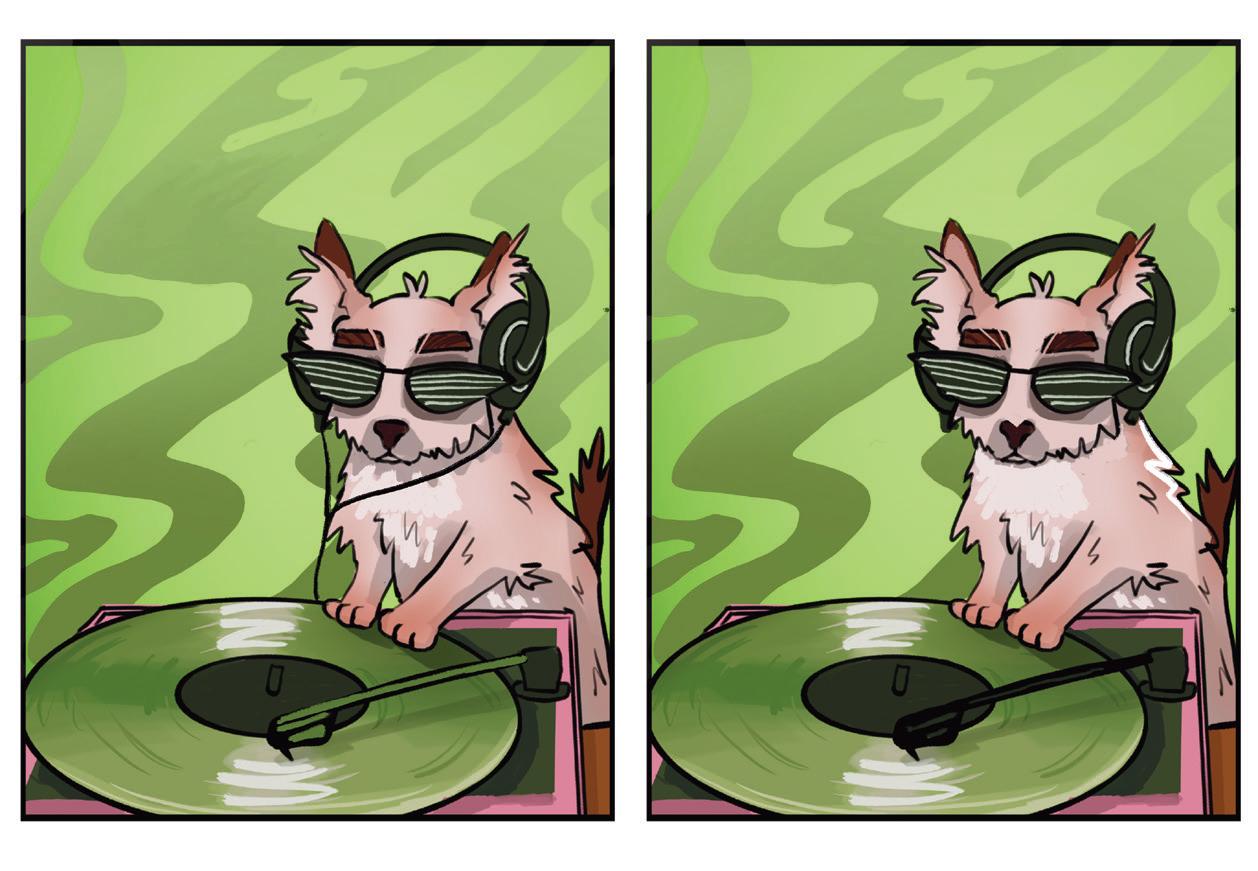
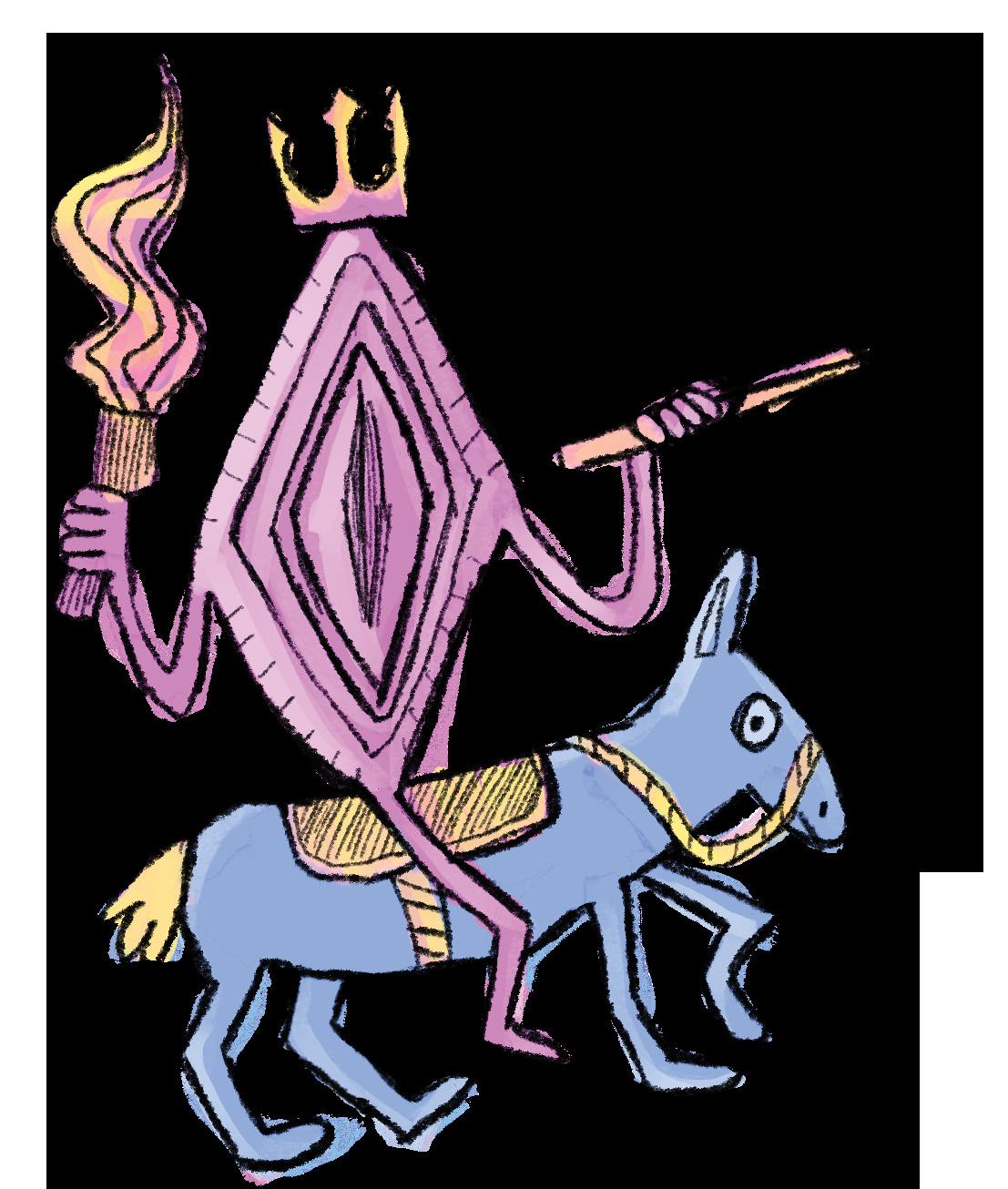
thatIcan’trememberhowitstarted.Therewasnoincitingincident raisedcompelledmetoquestionmylabia.PerhapsbecauseIwas (radical)bylesbianparentswithastronghippiepersuasion,and feministideologybeingpassedaroundthediningtableas bodyifitwerebreadandbutter.Iwasalwaysencouragedtoexploremy andI’dneverhadanydoubtsthatmyvulvaorlabiawereinanywayabnormal,orsomethingtobeembarrassedabout.
ByEsmeKelso&MaddyHall IllustratedbyGemmaMcKinney
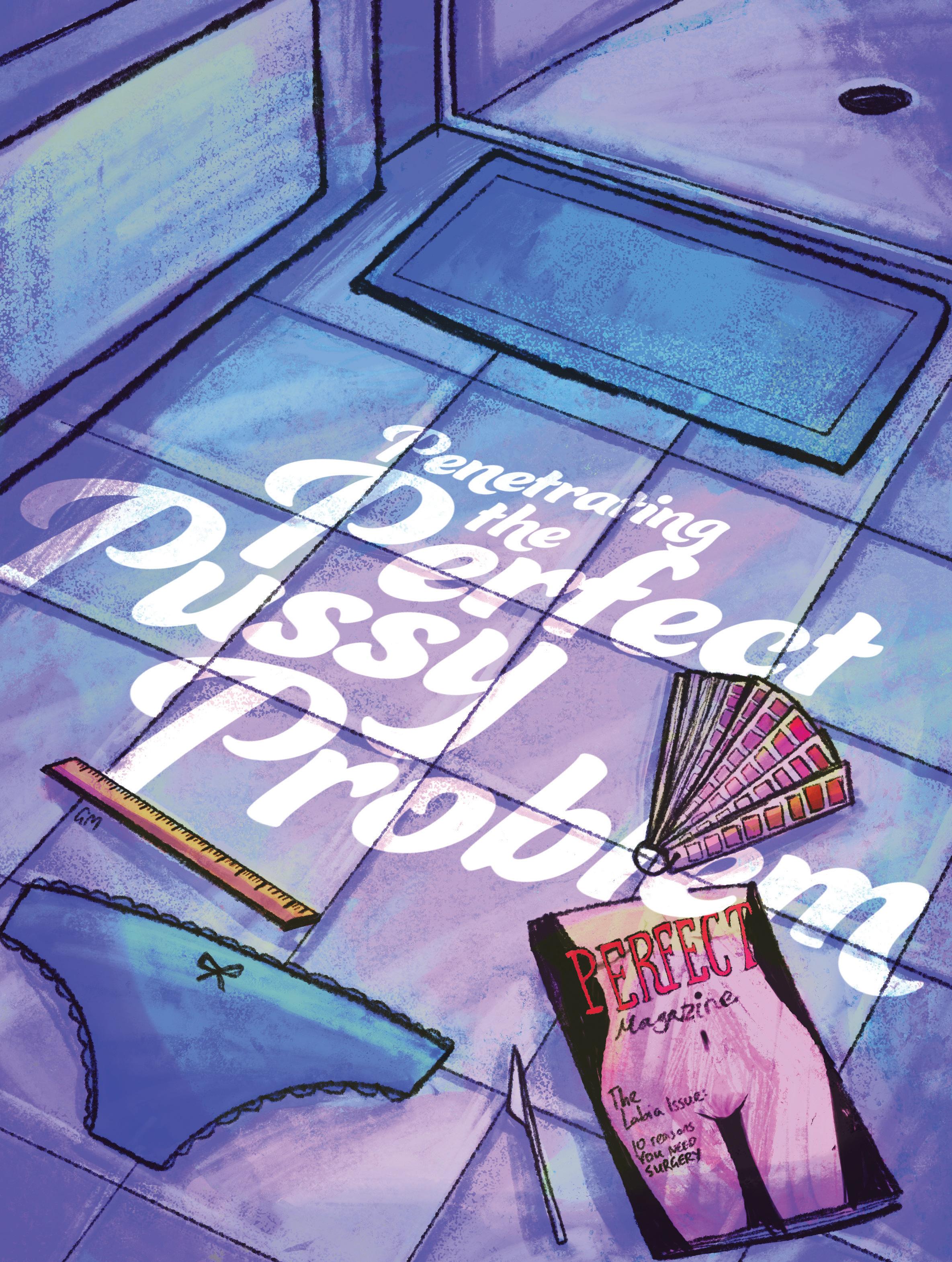
Yet one day, during my year exchange at Otago University, I found myself asking my walking-library flatmate if she thought my labia might be slightly different from “the norm” due to my higher testosterone levels (I was being assessed for PCOS and had just received blood results). We did some Googling and, as it turns out, genital size and growth is very complicated. What we did find was that, immediately, we were plastered with labiaplasty advertisements. After another quick Google (and another suite of ads), we learned that labiaplasty, like my testosterone, has been on the rise. As someone who’d always felt somewhat indifferent about my genitals, this shocked me. Who was doing this? And why were they doing it?
My first thought: I need to collect data.
I asked my close friends from overseas and my new Kiwi friends to send me measurements of their labia minora. People were keen, excited to take part in something new involving parts of their bodies usually reserved for either alcohol-infused yarns in the early hours of the morning or moments of privacy. So, they brought them out (figuratively, to begin with) into the open. It turns out (most) people love talking about their genitals once you get the ball rolling. The more people we spoke to and the more research we did, the more apparent it became that there was this “ideal” vulva presented in the media. You know the type: tucked-in, thin lips, uniform and symmetrical, probably smells like roses, and it’s definitely pink. The ‘Perfect Pussy’, if you will. Where did this ‘Perfect Pussy’ come from, and why won’t it go away? Together, we set out to penetrate the problem head-on.
What makes the origin story of the ‘Perfect Pussy’ exceptionally complicated is the fact that the concept cannot be traced back to a single trigger point. There is no one creepy white guy from 18th-century England or one labia-hating ancient civilisation to spitefully curse, fist in the air at the wind. Instead, the ‘Perfect Pussy’ finds its roots in racist, sexist ideologies of a bygone era, which serve to be equally relevant today as they were in their archaic beginnings.
From the Renaissance through the 20th century, European doctors repeatedly claimed that large or visible labia were unique to African women who were exhibited publicly as examples of what European women should not look like. One infamous example was Sarah Baartman as the “Hottentot Venus” in 19th-century London. Eugenicists later used these ideas to argue that visible labia in white women signalled “racial degeneration”. Around the same time, American gynaecologists began spreading the idea that “enlarged” labia were acquired through masturbation – at the time viewed as a sign of severe sexual deviance.
None of this is true. While forms of labia elongation have been (and still are) practised stylistically in some African tribes, modern science has found no link between labia size and ethnicity or masturbation habits. Despite this, these ideas have quietly persisted, woven into culture and endlessly reproduced in medical literature until they eventually filtered into the media we consume today. The original justifications are long forgotten, but the ideal of the ‘Perfect Pussy’ remains steadfast in the collective imagination.
No doubt porn plays a big role perpetuating the idea of the ‘Perfect Pussy’. The “tucked-in” look is hugely overrepresented in pornographic imagery; those who don’t fit it often face criticism (adult performer Bonnie Blue being a timely example). And like labiaplasty, porn consumption is rising. With content now spilling from dedicated sites into social media feeds, it has become nearly unavoidable, and studies show that seeing it directly influences how we perceive our genitals.
On the question of whether porn is driving the demand for labiaplasty – at the surface level, yes. Interviews with doctors in the early 2000s revealed that women would often turn up to labiaplasty consultations with airbrushed clippings from soft porn magazines as reference pics (we’re looking at you, Playboy), and surveys consistently show the number one reason women request labiaplasty is aesthetics, not medical need.
genitals was allowing insecurity to take root. The harsh truth? When it comes to judging labia, we are often our own worst critics. In one study, when asked to rate vulvas before and after labiaplasty, women consistently rated the “tucked-in” look as more attractive and more normal than men or non-binary participants. The ‘Perfect Pussy’ isn’t just in porn; it’s in our heads.
The evidence is clear: we’re betraying ourselves. The fact is, many women feel insecure about their perfectly normal labia, simply because they rarely get to see more than their own and what porn shows. We know porn doesn’t show the full range and, unlike men who’ve had literal dick-measuring contests since the beginning of time, women tend to keep it tucked away. So what does the full range look like?
With this in mind, we set out on a mission to survey the full diversity of labia at Otago. Critic Te Ārohi asked students and staff alike to sit down, spread their legs, and start measuring in the name of science – and well, curiosity. The results were eye-opening. Labia of all shapes, sizes, colours, and combinations revealed a diverse line-up among the 88 responses. Some tucked, some protruding; some wide, some narrow. Shades ranged from “Smithells Gym pink” to “Octagon-brick brown”; and “Charlotte Tilbury Pillow Talk” (twice) to “Nyx Hydra Honey”.
When asked to choose a shape that best represented their labia, responses were evenly spread across all six categories – from secretive to splayed. Labia widths ranged from just under half a centimetre to just over six, and lengths from two to ten. And to our surprise, protrusion was super common. Around 60% said their inner labia peeked out at least a little, while just over a third were entirely tucked in.
One thing was clear: there is no “normal” when it comes to labia. Even within our admittedly small, Beezie-based sample, variation was the rule. Despite being surrounded by this diversity, nearly 60% of respondents said they had, at some point, felt their labia weren’t normal – and almost half wanted to change them. Negative comments – whether from peers, partners, or doctors – were also shockingly common, usually focused on size or protrusion.
If nearly half of us want to change something that’s clearly perfectly normal, the problem isn’t our labia – it’s the narrow lens through which we’ve been taught to see them.
There is no ‘Perfect Pussy’. Every pussy is perfect, and in fact, normal. Some are small, some large; some tucked, some protruding. Think of it like a political compass for your genitals, and in this case, you should be proud no matter where you sit. Of course, unlearning the ‘Perfect Pussy’ won’t happen overnight, but we think it’s worth the work.
It’s clear that education is everything, and representation matters. Since most schools seldom venture beyond basic textbook diagrams, and porn is rarely going to reassure us that we’re normal, it’s up to us (as labia-owners) to be the educators of friends, family, partners, but most importantly –ourselves.
It’s crucial that people – especially young women – are introduced to a real spectrum of vulvas early on, whether through education, medical resources, or accessible image databases. Exposure to diverse anatomy not only corrects false ideals but also protects against the psychological harm of erasure.
We need to see labia. We need to talk about them, and we need to strip away the embarrassment around our perfectly normal, beautiful bodies. It’s time to abolish the “ideal” and celebrate the diversity.
Authors’ note: We hope that by showing Otago’s full spectrum – pink, brown, tucked, protruding, symmetrical, asymmetrical, narrow, wide, short, long, and everything in between – you might find it a little easier to embrace your own unique labia. And if you would like to help us capture more of the diversity of labia at Otago, and learn a little more about yourself along the way, come take our survey – we’d love to hear all about your lips! Scan the QR code to take part. You will also find links to four web projects that are committed to providing the world with a vast array of vulvas, belonging to bodies of all different shapes, sizes, and colours.

No one is going to be the best flatmate ever. But to be a good flattie, you have to be willing and able to accept your wrongdoings. Maybe you did leave your dirty dishes on the edge of the sink for too long, but it’s not okay to do it every week and blame your busy schedule. Let's be real, everyone is busy. Humility is the most important overarching virtue of flatting.
Have you ever bought a bag of carrots and finished it? No. If you have something that will go to waste, offer it to the flatties. If you see that the carpet is gross and you have some spare time, vacuum it. If you are low on toilet paper, go buy it. For a flat to run well, there have to be some sacrifices, and sometimes a charitable flatmate is the best kind of flatmate.
Okay so not in a super abstinence way, but you want your flatmates to think that you are as virginal as a nun. Sure, you can tell them about your sexual escapades afterwards but they really shouldn't be subject to hearing you trying out reverse cowgirl. So, if you are going to fuck, please for the love of all that is holy, be quiet.
Stay grateful, because one day you will need to use your flatmate's emergency roll of toilet paper, their bottle opener, or their emotional support when you inevitably forget about most of your 1% tutorial tasks. Gratitude is saying thank you when they do the dishes, even if it was their night. Gratitude is recognising you all live in a shit box flat together, and the only thing holding it together is goodwill and your appreciation for each other.
Temperance is about moderation. If you dabble in drugs or alcohol, you should take care and caution on how it will make you feel or react. Sure it’s fine to fuck out every once in a while, but don’t be the liability every single weekend. If you aren't into substances, remember that everything is good in moderation. Whether that is being a cunt or being ignorant, or just being annoying. Try it out in moderation.
Patience is hearing about your flatmate’s Pint Night situationship for the 6th time this week and not blowing a gasket at them. Patience is waiting the three months it takes for your flatmate to realise they haven't bought any rubbish bags but they sure have been using them. Patience is realising sometimes people are a little shit, because you probably are too.
Diligence is remembering the little things. Whether it is bin day, checking the oven is off, or paying your rent on time – even when you are too broke to afford $4 lunch. Diligence is the thing that shows your flatmates that you care about the upkeep of not only your home, but your friendship with them. The diligent flatmate is the unsung hero of flatting.
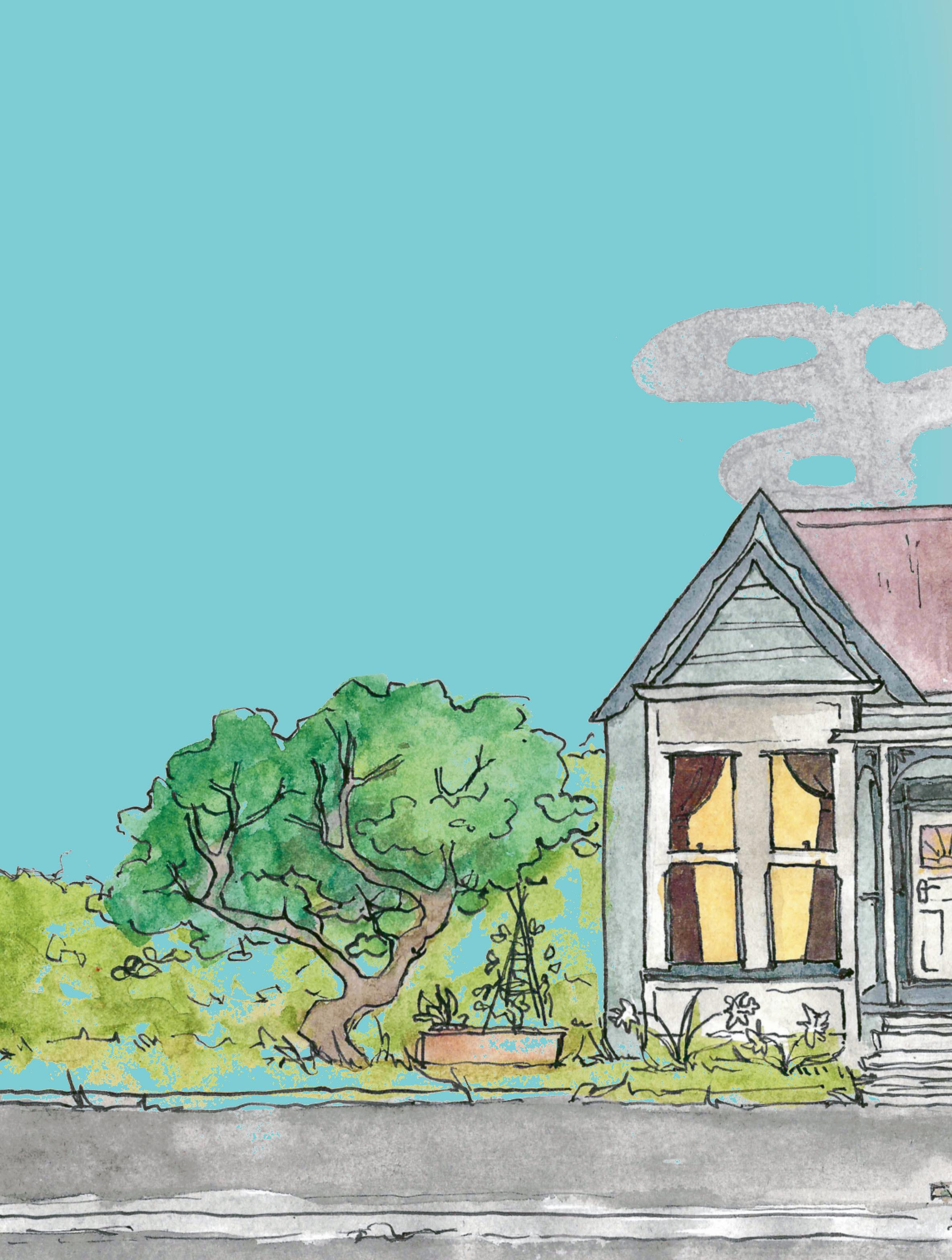
By Molly Smith-Soppet & Adam Stitely
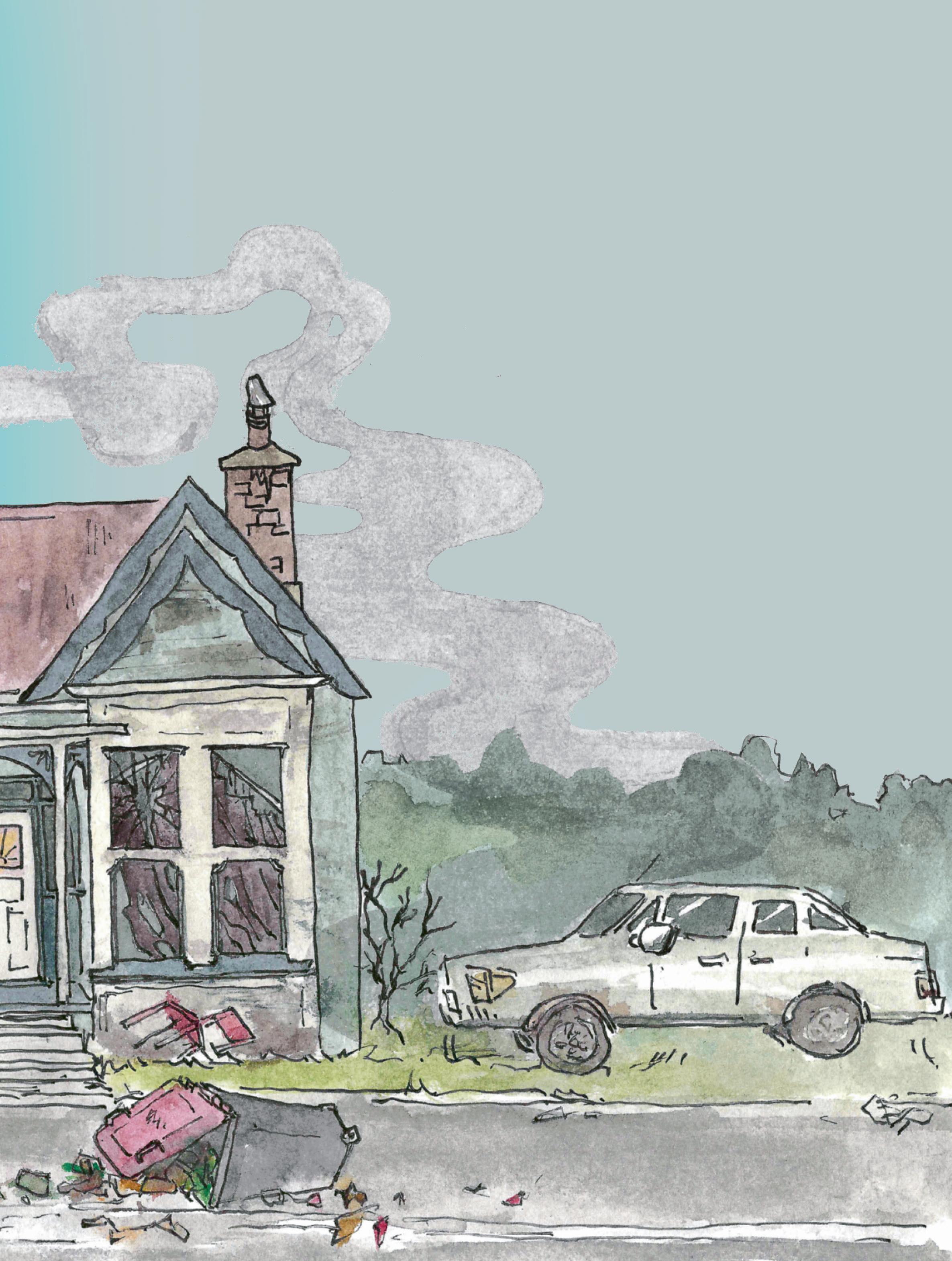
Pride is the over-inflated sense of superiority. The prideful flat is one that considers themselves above the simple tasks that hold flats and the shared Otago experience together. But such pride is, as always, a curse. Pride is selling tickets to a flat party. Pride is labelling yourself as the only ‘clean’ flatmate. Pride is unconscious. It is telling yourself that you don’t need to clean because you didn’t make the mess. You never make the mess. You are too good to be living in this flat, because your parents, indeed, pay your rent.
★
Envy is the greed for what someone else possesses. The winners express greed, the losers express envy. The envious flatmate is the one who got the gimp room. The one who gets Pam’s bread when you get Vogel’s. Envy is always drawing the short straw and making sure that everybody else knows about it.
★
Greed may be the worst sin of them all. Ever have a flatmate that makes you pay a greater share of the power because you admitted to using your electric blanket, or perhaps even worse, a personal heater? That is greed. Greed is taking up all of the flat’s freezer space. Greed is claiming the room that gets the most sun. Those who are the most greedy also fail to realise they are greedy at all. Greed brings on a blindness that causes people to mistake wants for needs.
★
The lustful flatmate manages to make everything about themselves. Lust is the basis of all desire, and desire is all about being an attention whore. Make a joke? They repeat it louder. Make dinner? They say they can make it better. Tell a story? They make something up and post it on UoO: Meaningful Confessions.
★
Gluttony is overindulgence to the point of negligence. Gluttony is inviting people over for kick-ons every time you go out. It is hosting a party when your flatmate has an assignment due. Going out is fun, we know, but gluttony is treating every week like O-Week, taking it too far, and for all intents and purposes being an asshole. Gluttony is constantly being the liability.
Sloth may be the most common sin of them all. Slothful flatmates are the ones who consistently fail to perform the difficult, but necessary tasks of flatting, like leaving the house on a weekday. Activities that can be labelled as sloth include but are not limited to: getting the flat banned from all food delivery services with a new ‘Fruber hack’; not changing their sheets for five months because “fuck it we ball”; consistently buying Dominos value range pizzas for flat meals; leaving dishes to soak; wearing jorts; overusing the term ‘ceebs’; and not related to sloth, but equally hated, unironically watching Nelk in 2025.
★
Wrath is the passive aggressive messages in the flat chat. It's flipping your shit, just because there are some crumbs on the bench. Wrath is using door slamming as a tool of communication to let everyone know you're pissed about something. The final and darkest sight of a wrathful flatmate is the rage-clean. When one day it goes from the silent treatment to a sparkling clean flat and pushing all previously had beef under the metaphorical rug.
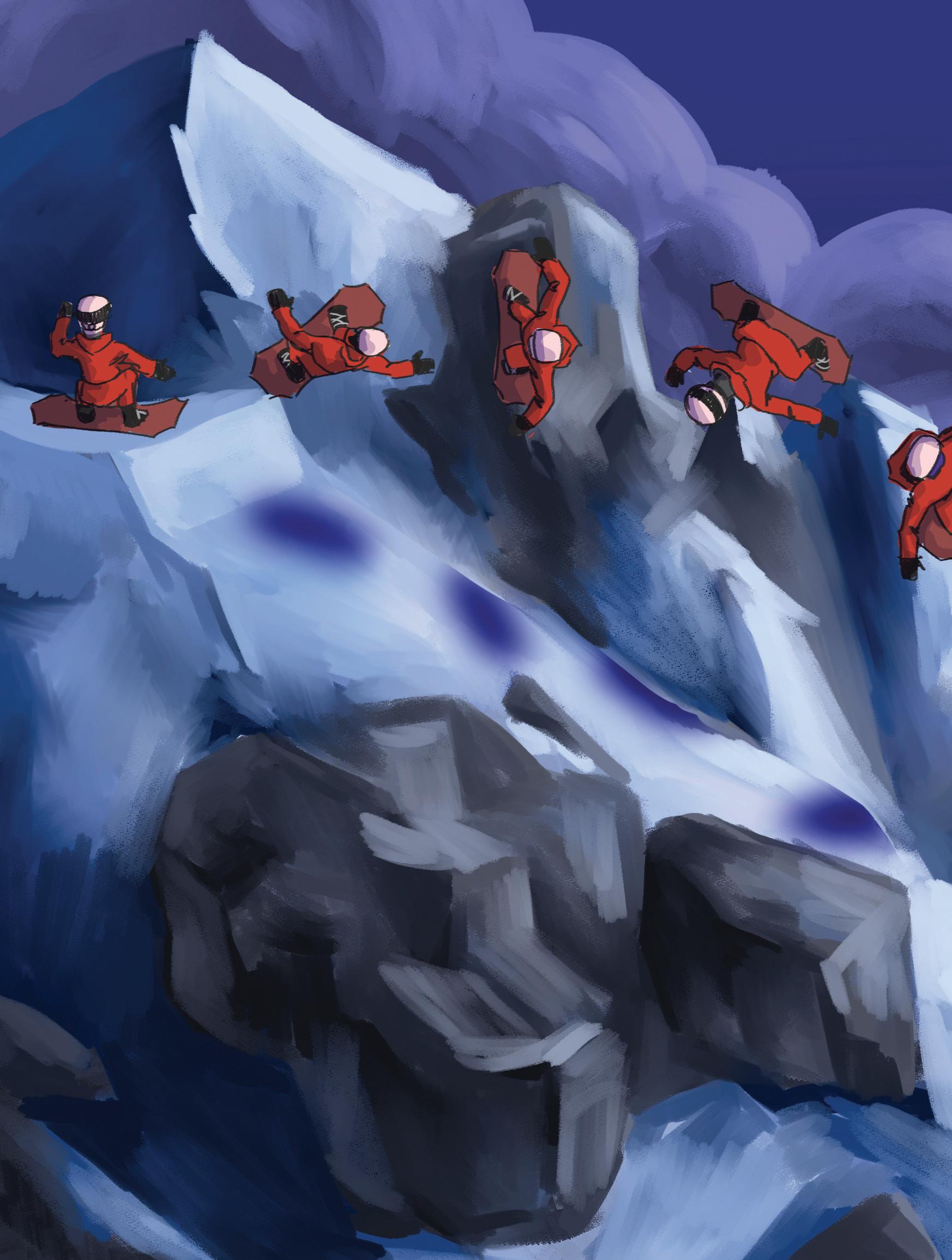
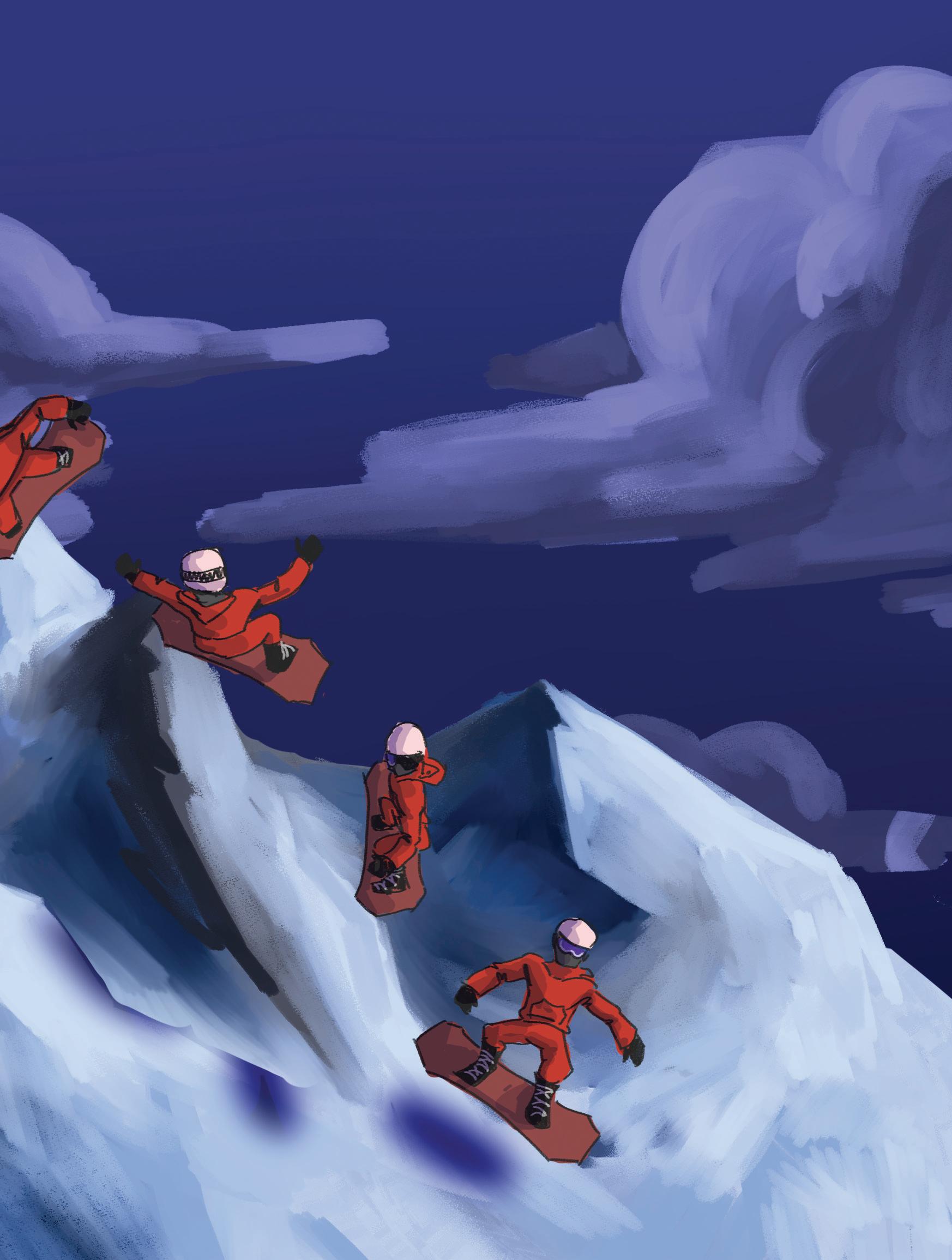
Student life isn’t always easy. For Mental Health and Wellbeing Week, campus-based support services – Student Health and OUSA Student Support – answer your questions with advice on everything from how to manage your workload through burnout or grief, to dealing with flatcest or hall food constipation.
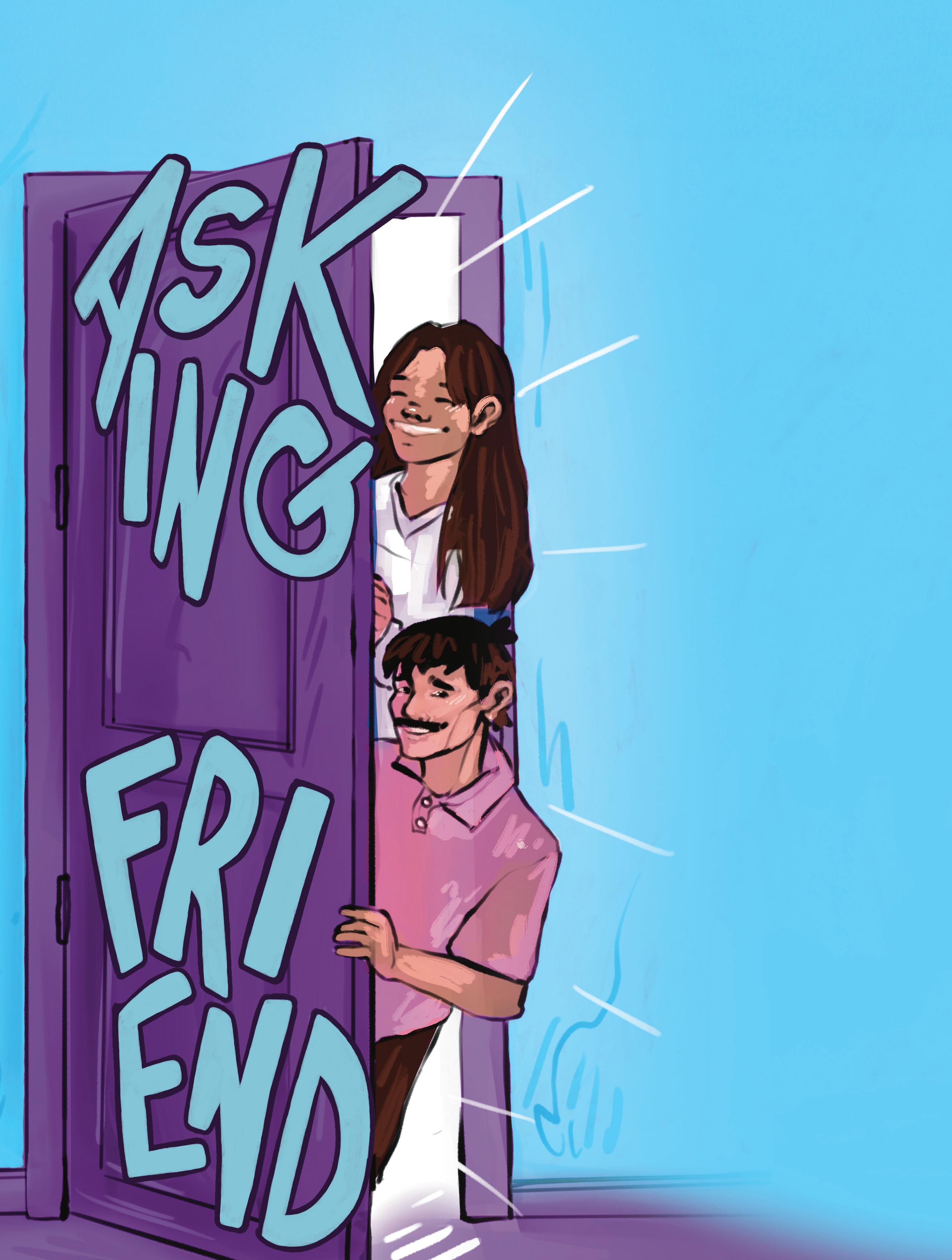
I’m so tired but struggle sleeping. Any tips? There are a few things you can try to help you sleep better at night. Going to bed and getting up at the same time every day helps to set your body clock. Avoid stimulants such as caffeine, alcohol, exercise (do this during the day instead) or a large meal within two or three hours of hitting the hay. It’s also a good idea to avoid screens an hour or two before bed. Instead, try unwinding with reading a novel, listening to music, journaling or meditation. Limit naps during the day – no later than 2pm. Finally, if you’re struggling to sleep, get up and do something not screen-based until you feel tired again. Healthify has a great app to track or aid sleep, and advice on their website if you’d like more information.
How do I deal with hall food constipation?
Constipation is a common problem and usually lasts a short time. A change in diet from home may trigger constipation. Things you can do to help avoid constipation include regular exercise, drinking 1.5L of fluid a day (water, ideally), eating high fibre foods every meal (vegetables, fruits, wholegrain breads, cereals) and add in the occasional natural laxative where possible (green kiwifruit, bran, and fruits such as apples or raisins). Like the previous question, Healthify has some great advice on their website.
How to tackle assignments when you have ADHD? ADHD can add extra challenges for people in their study journey (though the many superpowers it provides should not be forgotten!). The Attention Deficit Disorder Association (ADDA) has a page on their website with tips on how to study efficiently with ADHD, including minimising distractions and useful study techniques like the Pomodoro.
How do I manage my workload, stay motivated, and work through burnout?
We know what it is like to feel overwhelmed and burnt out as it gets closer to the end of the year. It is important to look after yourself and prioritise your health and wellbeing if you need to build your motivation and focus for study back up. To put it simply, self-care is crucial. It's also important to schedule breaks into your day alongside study –things like movement, connecting with others, sleeping, and eating. It may feel like you are wasting time, but breaks allow you to look after yourself and rest your brain between study blocks.
Try to make study work to your strengths and personal learning style. For example, flash cards (active recall), mind maps, group study, games, use of colour and illustrations. You could also try breaking your big tasks up into small, achievable chunks so that they feel more manageable. Student Support has study planners available on our website that are free to download, or the

team can support you to create a study timetable according to your strengths. You could also book a free workshop with the University Student Academic Skills team for academic support, including essay writing and unpacking assignment questions.
How do I regain passion for my degree after a painfully boring and interest-killing paper?
The trick is finding the magic in the mundane. The really bad news is that the experience of an “interest-killing paper” is just the tip of the iceberg. But the good news is you’ll likely experience some life-altering lectures and papers that will rekindle your passion and zest for your studies, too. Remember, going through your academic life involves taking some boring papers – they’re stepping stones for your next endeavour, so trust in the process.
How to get motivation again after getting grades you weren’t happy with
It’s important to first acknowledge your emotions without judgment, seek feedback from your lecturers and tutors, and use that feedback to review and improve future assignments. To rebuild your motivation, connect with supportive friends and family, and engage with inspiring lecture content or papers. You can also establish a concrete plan for future work through organised time management, while taking breaks to practice self-care to manage potential stress or burnout. Always remind yourself of your passion for pursuing the degree – writing it down can help keep you focused on your purpose.
My mum just passed away and life carries on but I still feel stuck We’re really sorry this has happened for you; grief is never easy to go through, especially when losing a parent. Time will be the big thing that helps you heal. Remember it’s okay to feel all the emotions you need to, it’s okay to be sad, angry, isolated and feel like no one else understands. Feeling everything you need to will help you get through the grief cycle. Remember everything good you and your mum had; those memories are forever. There are loads of resources through the internet or books around the cycle of grief. Always reach out to the Student Health Mental Health and Wellbeing team if you need counselling support.
Is postgrad supposed to be so hard and overwhelming or am I just dumb?
The short answer is yes and no. Postgraduate programs are designed to be difficult and challenging for most of us. We would be more concerned if any programme that we enrolled in wasn’t challenging! Human behaviour is interesting - we can sometimes become complacent if we are not faced with a challenge. We encourage you to lean into the difficult, and you will find it both rewarding and enriching.
I’m struggling with a lot honestly from family life at home to stress from uni work
It really sounds like you need a listening ear at the moment. Perhaps some help with breaking things down, providing some tips with managing stress and planning for the rest of the semester. You could reach out to a friend or family member to help you with this or chat to someone from a support service on campus. Finding balance between our home lives and studies is a constant practice and it is important to find the time to take care of ourselves, particularly in times when we are stressed. Remember, your student support advocates are always around to lend a listening ear.
How do you begin to approach a gay flatcest situationship?
This can be a tricky situation. Are you comfortable approaching your flat mates to talk about it? Are you worried about hurting someone's feelings? Is your flat dealing with some homophobia?
It might be worth having a sit-down chat with your flat mates. Talk about what you’re uncomfortable with/worried about, encourage people to be who they are & be open to hearing their experience! If you need more support with it, come by Student Support and see our Queer Focused Advocate.
Making friends as an adult is hard, I’m feeling a bit depressed in my flat. Flatties are nice but I’m never invited to do anything with them
Making friends is hard, especially when coming to university in a new city, or if you have anxiety around this sort of thing. The key to making friends is practice. Think of places where you can meet others and challenge yourself to strike up a conversation with someone. You may not always hit it off with everyone, but it is a great way to work on being social.
Another way to get yourself out there is to join a club or group (and there is a variety at OUSA Clubs and Societies!), or through volunteering, such as Are You OK? or Social Impact Studio/ Unicrew.
Being unhappy in your flat is a tough situation to be living in. Try to initiate an activity with some (or all) of your flatties. This could be something as simple as a bus ride out to the beach or take advantage of the student discount at Leap. Otherwise you could try to connect with others outside of your flat – like through the ways mentioned above.
I would like a checklist for everything to sort out before I graduate in November Head to https://ousasupporthub.org.nz/study/study-planner/ to check out our graduation checklist.
Disclaimer: These questions are answered by OUSA Student Support advocates; they provide general information and guidance only. While we aim to give helpful and supportive answers, we cannot guarantee that the information provided will be complete, accurate, or suitable for every situation. If your question relates to or is affecting your health, safety, or urgent personal matters, please seek assistance from one of the following services below:
OUSA Student Support: 262 Leith Walk 0800 12 10 23
Student Health: Cnr Walsh and Albany Streets 0800 479 821
Need to Talk? Free call or text 1737 any time to speak to a trained counsellor, for any reason.
Lifeline: 0800 543 354 or text HELP to 4357
Suicide Crisis Helpline: 0508 828 865 / 0508 TAUTOKO (24/7). This is a service for people who may be thinking about suicide, or those who are concerned about family or friends.
Depression Helpline: 0800 111 757 (24/7) or text 4202
Youthline: 0800 376 633 (24/7) or free text 234 or email talk@ youthline.co.nz
Asian Family Services: 0800 862 342 Monday to Friday 9am to 8pm or text 832 Monday to Friday 9am - 5pm. Languages spoken: Mandarin, Cantonese, Korean, Vietnamese, Thai, Japanese, Hindi, Gujarati, Marathi and English.
Healthline: 0800 611 116
OUTLine: 0800 688 5463 (6pm-9pm)
If it is an emergency and you feel like you or someone else is at risk, call 111.
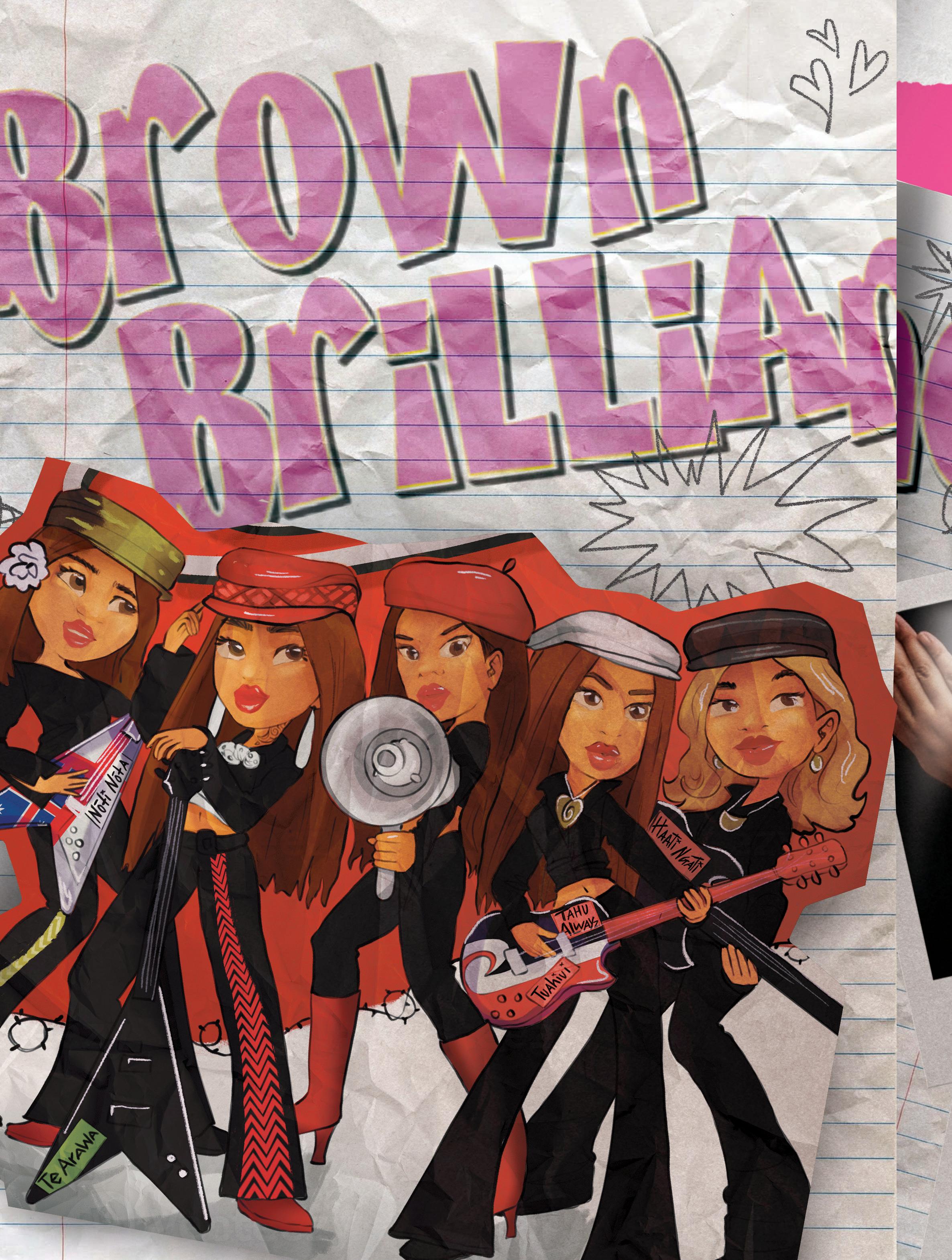
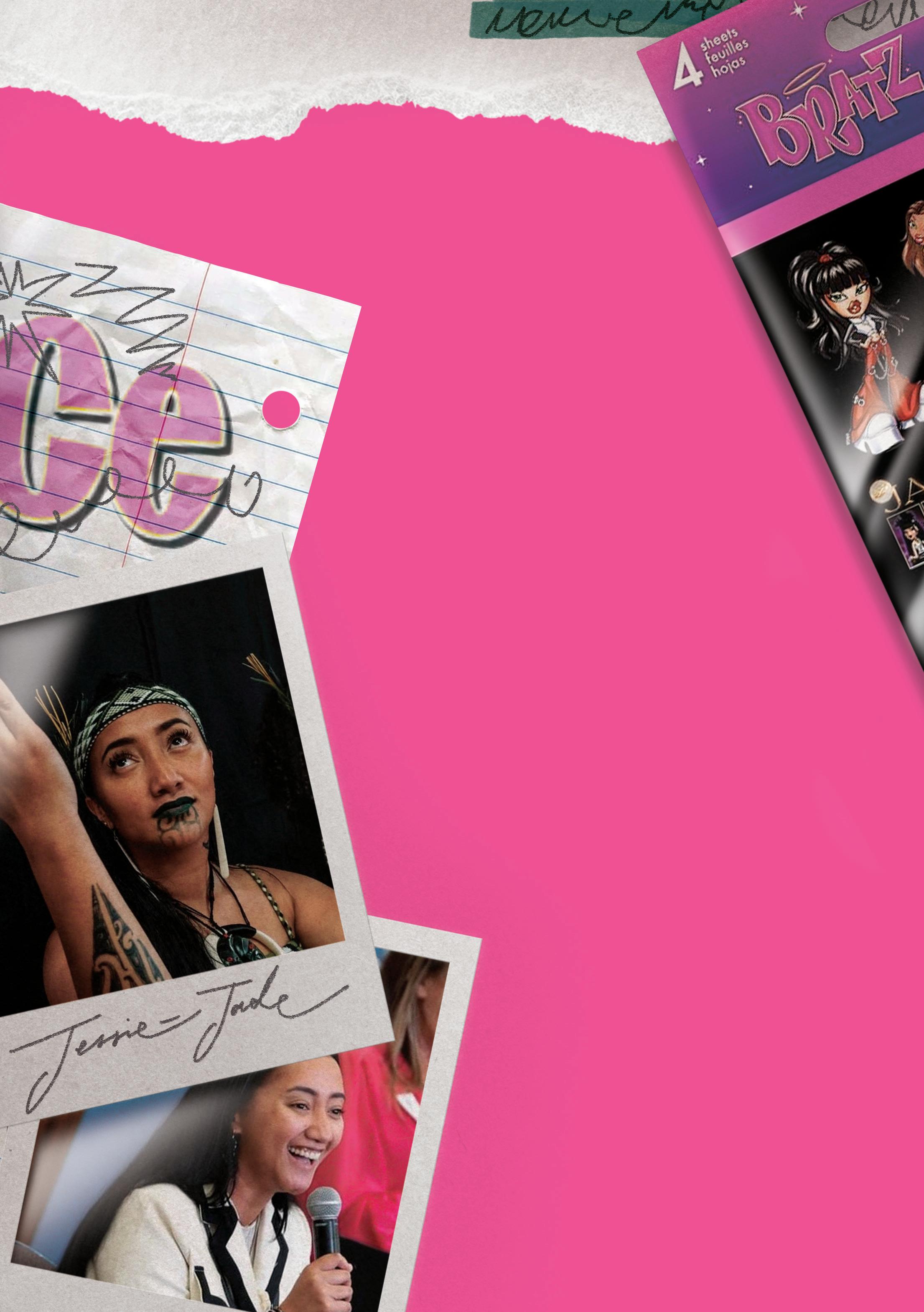
It was the issue no one could get their hands on. Copies of the Te Wiki o Te Reo Māori themed issue flew off the stands, and the kōrero reached corners of the motu that a Dunedin-based publication doesn’t usually touch. This year, Te Wiki o Te Reo Māori wasn’t just celebrated, it was redefined – pushing the boundaries of visibility, celebration, and mana-enhancing Māori magic. At the puku of that mahi were four wāhine serving Brown Brilliance in every shade: a mic-dropper who never misses a beat, a geneticist rewriting the code, a songbird who schools while she soars, and a connector who makes worlds collide. Distinct in their journeys but bound by a shared vision, together they’re
unshakable. Back by popular demand, bringing all their brilliance with them. It’s time to meet them properly.
Āti Ue, Ngāti Ngararanui, Ngāti Ngahere, Te Whakatōhea
Authored Champion One Day, Crumbling the Next and From Vegas to the Valley – A Taste of Mita
Where better to start than with the (Roto) Vegas-born, unapologetic powerhouse herself – JessieJade Witeri, impossible to miss across those pages. Sassy, sharp, and unafraid to stir, Jess is a voice that cuts through the noise, a presence that commands attention, and a creative force who never misses a beat.
Jessie’s pen hit the page with a wero to the University of Otago – a straight-up challenge to Western institutions and the way their business-first logic sidelines communities in favour of profit. The piece didn’t just call out inequity; it carved out space for a Māori worldview to stand front and centre. That’s Jessie all over: kicking doors down, dragging truth to the centre of the room, and daring anyone to look away.
But Jessie wasn’t always loud. “I was a shy little shit,” she laughs. Orphaned at 13, she was raised by a village: siblings, aunties, cousins, the usual. Her sisters taught her compassion; her brothers taught her to stand her ground. Karaoke shows in the lounge, haka on the school field, Missy Elliot raps she swears she doesn’t remember – it was all training for the stage she didn’t know she’d one day command.
By high school, Jessie was already learning how to shapeshift to fit in. “I’d put on an act, even pretend to be another person, just to belong,” she recalls. That girl feels worlds away now. The Jessie of today doesn’t dilute, bend herself small, or whisper. She found her voice – and once it showed up, it didn’t shut up.
The first time Jessie got in trouble for speaking up? “Every time,” she says. Whānau shaped her, held her, and loved her – but some things got swept under the whāriki, and she wasn’t about to let silence do the heavy lifting. The bluntness people know her for now was forged back then, a promise to herself that her own kids would never grow up having to swallow their truths.
School cracked the mic wide open. A Year 3 teacher, Mrs Elsemore, was the first to clock her spark, holding up Jessie’s wild holiday story – turtles, Rarotonga, pure imagination – as something worth celebrating. “I’ll never forget how she made me feel.” That moment stuck: words could move people. By high school, the applause got louder. Jessie walked onto a competitive speech stage stacked with head boys, head girls, and prefects, armed with cue cards and polish. But Jessie? She walked on with nothing but audacity. “I improvised the whole thing,” she laughs. And she won. A trophy bigger than the rugby boys’ cups, her name carved into it forever. “Big win for the inner child,” she says. “It still makes me smile.” One day, she was pretending to fit in. The next, she was proving she belonged on any stage, anywhere – no cue cards required.
“My mahi chooses me.” She says it quietly, not as a boast but as a truth. From spoken word ovations at the Sydney Opera House – one of the largest stages in the world – to grassroots advocacy for Māori mums through the action group Hine Ki Te Wheiao, Jessie doesn’t separate her worlds. Advocacy feeds her creativity, creativity fuels her activism, and activism anchors her mahi. Even in her role as Advocacy Lead for Ki Tua o Matariki, she doesn’t force the merge; it happens naturally. Reports and funding proposals sit alongside murals and podcasts, all different vessels carrying the same kaupapa. Every platform becomes an opportunity and a wero. Jessie’s brilliance isn’t in speaking the loudest – it’s in making sure her words carry, land, and stay.
Surprisingly, if you ask Jessie what her strongest tool is, she won’t say her voice, but her memory. “I can hold on to kōrero and repeat it back like a Kākā,” she laughs. But anyone who’s been in the room with her knows it’s more than mere recall. It’s the way she listens, threads stories together, and knows exactly when to land her words. “This makes me dangerous in a public setting, and adds a bit more ink to my pen.”
Outspoken is a label people throw around, but Jessie doesn’t take offence. Tone tells her everything; friends say it with aroha, critics say it with fear. Either way, she owns it. If her kōrero makes someone uncomfortable, it’s because it needed to. Her measure of success isn’t trophies or titles, but Tā Mason Durie’s framework: whānau first, then her mental, spiritual, and physical wellbeing. If her tamariki and partner are thriving, she’s thriving. If her own wairua is steady, then she knows her mahi can carry others too. In every sense, it is a brilliance that is lived, not performed. Despite an ability to roar like wildfire, Jessie’s got a softer, playful side – like embers in a campfire. She loves Tame Iti’s words, gets unreasonably excited about skincare rituals, and finds peace in guilty-pleasure retail therapy. Cry in front of her, and odds are she’ll cry too. Call out the Minister of Health at a national conference, and she’ll do that just as easily. Duality embodied. Day-today creativity doesn’t always look like big stages or magazine spreads, though. Sometimes it’s writing reports, sometimes spoken word, sometimes just letting her tamariki remind her what joy looks like. Side projects stack up, from podcast hosting to running kapa haka socials, but they’re never vanity projects. Each is another outlet for kaupapa.
Jessie jokes about bringing a “bitchy lil’ pōtiki vibe” to the Te Wiki o Te Reo Māori issue, but her voice was anything but small. If anything, it amplified the whole kaupapa; dragging where dragging was due, celebrating where celebration was overdue. For Jess, the horizon is wide open. More writing is a given, but so is experimenting with new ways of storytelling – from theatre to TV, and anything else that lets her take up space unapologetically. She laughs about one day creating a “hot brown girl activist” series, but beneath the joke is a serious intent of showing that Māori brilliance doesn’t just fit in the box, it remakes the box.
Jessie defines Brown Brilliance with a grin: “It looks like confidence, smells like caramel cookies and a hint of audacity, and talks like it owns the mic.” But her real message for wāhine Māori is straight to the point – stop tripping. “You’ve wasted too much time worrying about what others think. Spoiler: they’re not even thinking about you. Back yourself.”
If Jessie’s past is proof of anything, it’s that she’ll keep turning every platform into a wero – and she’ll do it with the kind of mana, bite, and brilliance that refuses to be ignored.
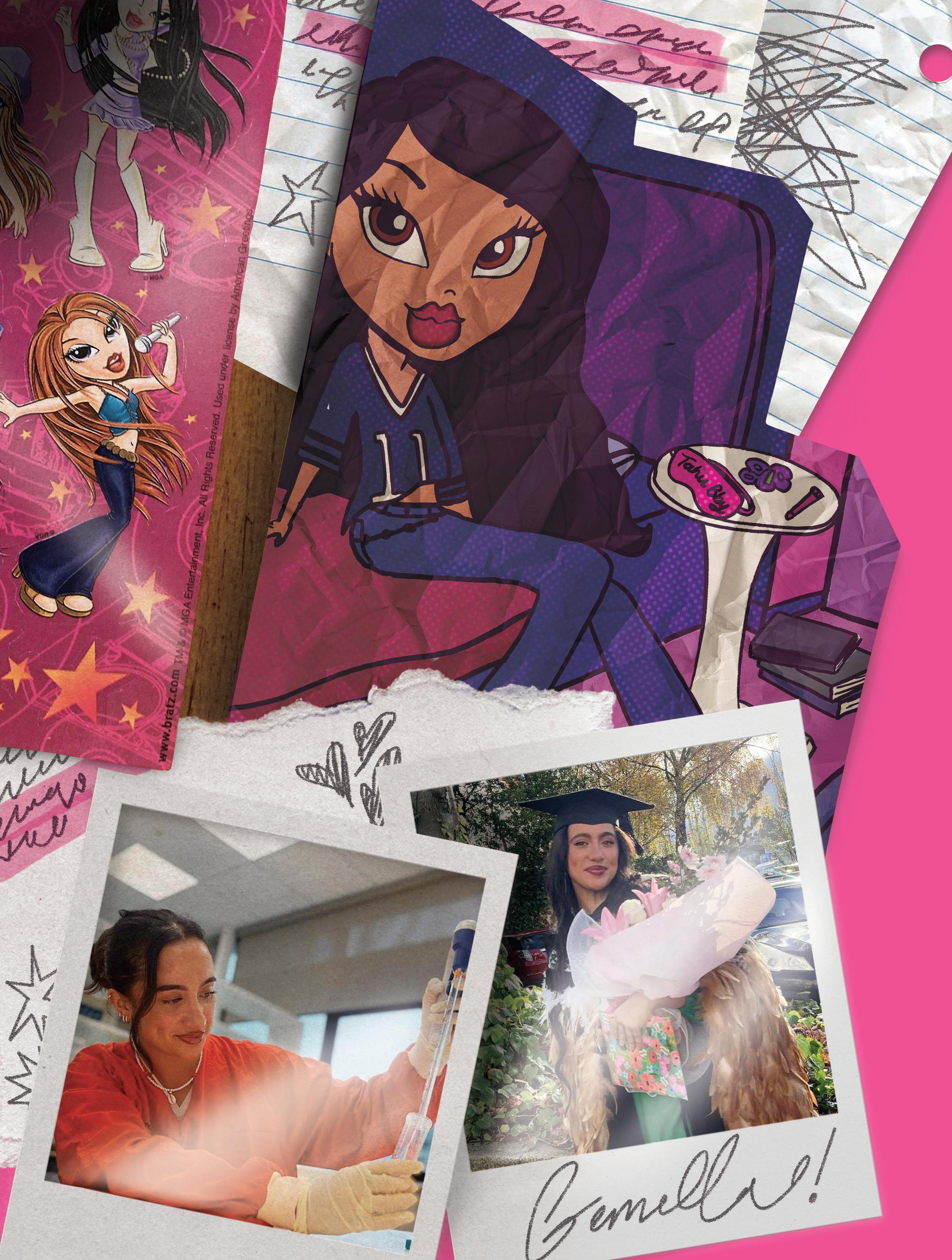
Ngāi Tahu: Ngāi Tūāhuriri, Ngāti Waewae, Ngāti Hāteatea
Authored Flaunt Your Fashion
If Jessie was the firestarter of the issue, then Gemella ReynoldsHatem was its steady flame, equal parts scientist and storyteller, brains and heart. A Master’s student in Genetics with a flair for mahi toi, she’s rewriting the code not just in labs and libraries, but in the way whakapapa, research, and advocacy can braid together. Scholarship-winning, trend-setting, and never afraid to speak up, Gemella is the People’s Princess of kaupapa Māori academia –blending brilliance, beauty, and boldness with ease.
That mix didn’t come from nowhere. Gemella grew up between Māngere, Botany, and her marae in Ōtautahi, moving through worlds that didn’t always make space for her, learning quickly how differences can sting – and how whakapapa, whānau, and books could soften the edges. Being brilliant was never about outshining others; it was about carrying the weight of those who couldn’t finish school and turning survival into momentum.
University tested that resilience. Gemella began in First Year Health Science, failed her first semester, and carried the burden of tragic losses that could have stopped her studies altogether, including the Christchurch mosque shootings in 2019. Instead, the setback gave her clarity. With the support of mentors and the pull of her own instincts, she returned to Genetics and paired it with a major in Indigenous Development. It wasn’t the plan, but it felt right – a way to let both worlds speak at once rather than compete for space.
The spark had come earlier, in Year 11. Sitting in Miss Denny’s biology class, the topic turned to genetics. For most students, it was just another chapter. For Gemella, it was a revelation. Whakapapa wasn’t only the stories passed on at the marae: it was also written in cells, a thread carried in blood and bone. Genetics became another language for belonging, another way of saying that connection endures. That shift continues to shape her mahi today. Now a recipient of the Māori Cancer Researcher Awards 2024, her Master’s research focuses on improving outcomes for Ngāi Tahu whānau affected by CDH1 cancer. It is academic and personal; technical and deeply human. For Gemella, science and whakapapa are inseparable.
With her love for science, creativity too has travelled alongside her, even if at times it was pushed aside in favour of labs or lecture halls. As a child, she filled sketchbooks and staged her first art exhibition before pressing pause to make space for academics. Only recently, during her Master’s, she found herself pulled back to mahi toi – drawing, painting, and learning under artists like Heramaahina Eketone at Te Wānanga o Aotearoa. It felt less like a new pursuit and more like a homecoming, reclaiming a part of herself she had left waiting. That return to creativity is also a return to balance. Wednesdays are her favourite day of the week: te reo Māori classes, hui, time in the library, and mahi toi all woven into one rhythm. On the other hand, weekends are for whānau, mahi with her rangatahi every Saturday, visiting the archives, secondhand bookshops, and, of course, the gym.
Where some see tension between academia and artistry, Gemella sees flow. Genetics teaches her about whakapapa in one register; art allows her to tell those same stories in another. Both are acts of advocacy, both are forms of survival. Her voice – whether in research, wānanga, or whānau spaces – is steady, persuasive, and deeply her own.
When you get to know her, it is evident that her research isn’t about pursuing science for the sake of it. It is about protection, healing, and carrying her people forward. In the lab, that means testing specific drugs, like capivasertib and fulvestrant, to see if they can halt tumour growth in CHD1 cancer models. But her mahi doesn’t stop when the coat and goggles come off. Outside the lab, she’s running wānanga with her whānau at Tuahiwi, weaving tikanga and cultural practices into spaces where people can openly speak their mamae. It’s a model of research that’s unapologetically Māori in its foundations. Her goal is simple: to make the health system serve Māori better, and to build pathways where Indigenous knowledge and cutting-edge science move together.
Carrying that duality has its weight, though. Standing out makes you visible, and visibility invites critique. Tall poppy syndrome, Gemella says, is a familiar shadow, but perspective is her shield. With whakapapa that ties her to both Te Waipounamu, Syria and Lebanon, she holds stories of tīpuna who faced unimaginable hardship. Measured against that, the challenges of academia are small – not insignificant, but fuel for her determination rather than barriers to her path. And at the heart of it all is advocacy. “It was never something I had to learn; it’s inherited,” she explains. Whether she’s speaking in academic forums, standing with whānau, or navigating the politics of science, her voice has always been steady, and her presence unmistakable.
Brilliance for Gemella isn’t about titles or prestige. Why would it be, when her whakapapa has already taught her that survival, resilience, and aroha are the highest forms of success? As well as holding, she creates space where her whānau feel seen, and where the next generation can inherit systems that serve them. Whether in the lab, at the marae, or in the pages of her own journals, she carries both microscope and megaphone – unshakable, grounded, and endlessly giving.
Gemella might laugh off the nickname “the People’s Princess” – but it fits. At every step, her brilliance belongs as much to her people as it does to her. And where Gemella builds systems that serve, Tenaya fills them with sound.
Te Aitanga-a-Hauiti ki Ūawa
Authored From Ūawa to the Unknown: Six Weeks Across Taiwan
A coastie girl turned campus’ ultimate big sister, Tenaya doesn’t just step into a room – she rolls in like the tide. There’s the pull of her presence, the tug of her voice, and the undercurrent of her wairua that leaves no one untouched. But like the ocean she grew up beside, Tenaya has known the low tide too: the drag of burnout, the sharp rocks of tall poppy cuts, the moments where the current threatened to pull her under. And still, she surfaces every time. Tenaya’s voice first carried across campus as a student, equal parts powerhouse and protector. During her student days, she sat as an Officer on Te Rito and the Aka Mātaamua (Postgraduate Officer) for Ngā Tauira o Te Kete Aronui. Since then, she has served as Kaiāwhina, first for the Māori Centre before stepping up as Kaiāwhina Māori for the wider Division of Humanities – roles that made her a tide in constant motion, pulling people in, holding them steady, and reminding them why they weren’t navigating those waters alone.
Now fresh from completing her Master’s in Teaching and stepping into the classroom as a kaiako, she’s still that same force of nature. Only now, she flows into tamariki futures – a lesson isn’t just curriculum, but preparing the next wave of rangatahi to move with strength. But every tide has a beginning. For Tenaya, it started on the East Coast between Gisborne and Tolaga Bay, before the current carried her inland to Hamilton, where her mum’s mahi took root and Tenaya’s own creativity began to bloom – kapa haka, singing, performing – always drawn to the stage. Home for her has never been “just one place” but a constellation of them.
Music has always been more than a passion for Tenaya, and today it constitutes the larger part of her identity. She studied it, graduated in it, and now passes it on by teaching others to sing –shaping voices with the same care that whānau and teachers once poured into her. But her vision stretches beyond the classroom. Tenaya dreams of facilitating vocal therapy through a Māori lens and using song as a tool for healing. To guide the use of her voice is a responsibility, something she can trace back to the rite of passage all eldest daughters travel through. In the background of childhood photos, Tenaya was “playing house, doing the dishes while the adults got drunk.” Growing up was abundant in the “little joys”, like her dad buying her an MP3 Walkman and S Club 7 CDs. Between the weight of responsibility and those sparks of joy, Tenaya learned early what it meant to hold both.
Talking to Tenaya about her journey, it is evident that family is the defining current, always pulling her back to herself. Her dad was the
source of music and joy – the one who set the bar for what love should feel like. “Without my dad, I wouldn’t know what real love is,” she says. On the other hand, she says her mum is the rock that keeps her in check: “I get my grounding from her.” Between her parents’ lessons, Tenaya was set up for success – not in a straight line, but in a way that allowed her to explore, adapt, and gather the tools she needed along the way. Her journey has never been about prestige, but preparing herself to serve the people around her.
Tenaya didn’t leap straight into university. At 18, Tenaya trained in massage therapy while quietly wondering if midwifery might be her calling. Before she ever set foot in an Otago University lecture theatre, she had also earned a Kāwai Raupapa Certificate in Māori indigenous art from Te Wānanga o Aotearoa, sharing that she “didn’t even do it for the certificate,” but just to immerse herself in mahi toi. Music, though, was the current she couldn’t ignore. Tenaya had applied for a Bachelor of Music in secret, sending off her audition tape without telling a soul at home. Her parents only found out at a family celebration once her place was secured. “My mum was initially upset,” she admits, “but I explained that I needed to take ownership of my life. Doing what I loved ended up making my parents proud.”
And who could have known that one decision – to follow her voice – would explode into so many other opportunities. She was awarded a Te Kāika Housing Scholarship in her first year of study, lifting some of the financial pressure and letting her throw herself fully into both study and service. After completing her undergrad, Tenaya was also awarded the Ngarimu VC and 28th Māori Battalion Memorial Scholarship – an incredible honour that is awarded annually to students of Māori descent who possess characteristics similar to those of the 28th Māori Battalion soldiers. The recognition was especially poignant: Moana-Nuia-Kiwa Ngarimu VC, whom the scholarship memorialises, hailed from the East Coast – the same whenua that Tenaya and her whānau call home. For Tenaya, the scholarship was more than recognition – it was a launchpad that gave her the means to pursue her Master’s in Teaching.
Her students bring with them stories, challenges, and brilliance of their own, but she meets them where they are, shaping lessons into lifelines. Beyond the school gates, her world has expanded again: she’s recently stepped into a new role as a tutor for He Waka Kōtuia, one of Dunedin’s leading kapa haka groups. Taken under the wing of the brilliant Cassidy whānau, she’s found a new home for her voice, pouring her energy into rangatahi performance and watching them grow on the same stage that helped shape her.
When asked if there was ever a moment she realised her voice was strong – whether spoken, sung, or otherwise – Tenaya doesn’t hesitate. Confidence, she admits, is something she still wrestles with. Even now, with whānau, friends, and colleagues affirming she’s exactly where she’s meant to be, she holds herself to exacting standards. That drive comes from growing up in a female-led whānau where resilience and self-reliance were everyday lessons. It also means she can be her toughest critic – a perfectionist who pours her whole soul into her mahi, but often overlooks what she’s already achieved.
At her core, Tenaya is a Haati Ngāti girl – grounded and fierce in the way she meets life. Every opportunity, she says, is a wero. “You don’t turn your back on it, and you don’t take your eyes off it,” she says. That lesson has carried from the East Coast to the classroom, from kapa haka stages to Taiwan and back, and into the lives of the tamariki she now teaches. Her brilliance isn’t just in the power of her voice, but in the way she uses it – to steady, to guide, to uplift. Like the ocean she grew up beside, she can be calm, she can be forceful, but above all, she is constant: a presence you can trust will always return.
If Tenaya is the tide, then Te Āwhina is the bridge – steady, intentional and built to carry people across. She has always been that link between worlds: te ao Māori and te ao whānui, personal and political, activist and diplomat. Her strength isn’t in standing at one end and calling people over, but in being the span itself.
Ngāpuhi, Ngāti Kahu, Ngāti Hine, Te Hikutū, Te Whānau-ā-Apanui, Ngāti Porou, Ngāi Tahu, Waitaha, Kāti Māmoe
Authored Te Reo o Te Moana
Te Āwhina shines in the spaces where peace and conflict meet, where communities need a voice, and where leadership calls for both grace and fire. Her brilliance isn’t in being the loudest voice, but in knowing when to speak, when to listen, and how to move people forward together.
Raised as the eldest child in a whānau that expected and nurtured leadership, Te Āwhina describes herself as having been “born into succession.” Teachers, parents, and kaumātua all recognised those qualities early on, placing her in spaces where her skills could flourish. It’s clear she was born of greatness, to which she responded, “Therefore, I’m meant for greatness.” That grounding –knowing her whakapapa and who she is – has been the compass she carries into every role, from her marae to university halls, student politics to mahi for her iwi.
Te Āwhina’s advocacy first came alive on the Manu Kōrero stage – a speech competition for high school students that encourages fluency in both te reo Māori and English – when she delivered a 12-minute bilingual speech discussing Nā Wai Te Wai – Who Owns The Water? It was the first time she saw how her words could move people. Though she had really been trained for that moment her whole life. “That’s what sets Māori ahead of the game,” she reflects. “We prepare our tamariki to know who they are. It starts with you and your people.”
At university, that spark grew into flame. During a stint as a Resident Assistant at Salmond College, mentors named her future before she saw it herself: “Foreign affairs and diplomacy? That’s you.” Other opportunities came by way of a nudge from friends or whānau, but she doesn’t see that as a coincidence. “I think being authentic in who I am attracts those things into my orbit,” she says. That authenticity has carried Te Āwhina into leadership roles like Āpiha Mātauranga Māori (Cultural & Education Officer) for Te Rito in 2021, Political Representative for OUSA in 2022, and now, knee-deep into her Master’s research in Peace and Conflict Studies – where her writing, her activism, and her deep sense of justice intertwine.
Her thesis is more than an academic project; it’s a blueprint for reconciliation. Exploring how Indigenous communities navigate conflict and peace building, she positions Māori and Pacific voices within global conversations, offering lessons the world desperately needs.
Te Āwhina will tell you her pen is her sharpest tool, the place where her thoughts crystallise into action. But her presence speaks just as loudly. “A friend once told me I'm opinionated, outspoken, and calculated,” she laughs. “I know that I’m outspoken, but I’ll own that now. It’s in our blood.” Together, her presence and her pen make her both diplomat and advocate – able to speak truth into the world and bridge divides with conviction.
Still, Te Āwhina’s measures of success are disarmingly simple. Not accolades, but balance: getting enough sleep, raising her son Noa with the same grounding in identity her parents gave her, and building villages of friendship and whānau that sustain her. “Success,” she says, “is doing something you love rather than loving what you do. It’s fulfilling your purpose.”
When she joined the Te Wiki o Te Reo Māori takeover, she saw it as a chance to share knowledge that had been entrusted to her. “It came more naturally than I thought it would,” she reflects. “I was writing about things that I love. I wanted that same fire and passion I feel for our language and our Pacific connections to exude from the pages and touch others – so they might feel that same magic and inspiration.” In that space, she became a vessel for stories and histories far older than herself, honoured to carry them forward. Imposter syndrome, as it does, showed up briefly, but once she began writing, the work felt effortless. “It makes sense now why the thought of writing a thesis doesn’t scare
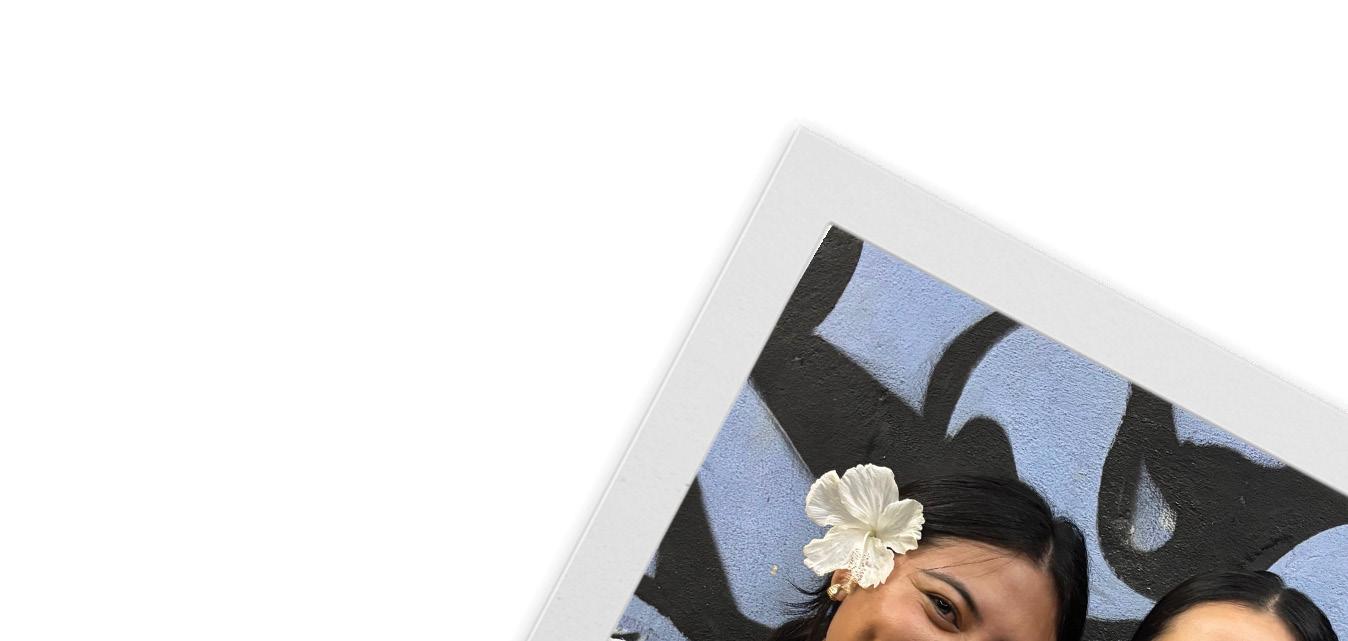
me. I love putting thoughts to pen and making art in that way.” Her hope was pretty simple: that readers would feel more connected – Pacific and non-Pacific alike – to the ties that bind Aotearoa to the wider Pacific. For her, the written piece “only scratched the surface,” but it affirmed her role as part of an intergenerational chain of storytellers and advocates.
Looking ahead, she is working towards earning her Master’s with distinction, raising her son Noa in a richness of identity, and aims to move into foreign affairs. Beyond that? More writing and creative expression are at the top of the list. “I also need to stand at a Te Matatini one day. That’s a creative pursuit I have in my dream cards,” she says. But there’s no hurry. “One thing I’ve learned is that there’s no rush in the pursuit of your dreams. Everything happens at the right time.”
At just 25, Te Āwhina has already become a bridge in motion – strong in her own right, yet always creating pathways for others to cross. Like kahurangi pounamu, polished by generations before her, set firmly in the present, and carrying light for those still to come. In her name lies her truth – Te Āwhina, the caretaker; Pounamu, the jewel of the South; Waikaramihi, the rippling waters that touch and connect all they meet. She is the dream of her people, carried in her very name.

At the puku of the mahi and the heart of the dream remains four wāhine Māori serving Brown Brilliance in every shade: Jessie, the powerhouse whose voice never misses and always moves; Gemella, the geneticist rewriting futures and the code; Tenaya, the travelling songbird who teaches others to fly; and Te Āwhina, whose ripples bridge people, places, and purpose.
Distinct in their journeys but bound by the love for their people, together they are indestructible. Brown Brilliance isn’t

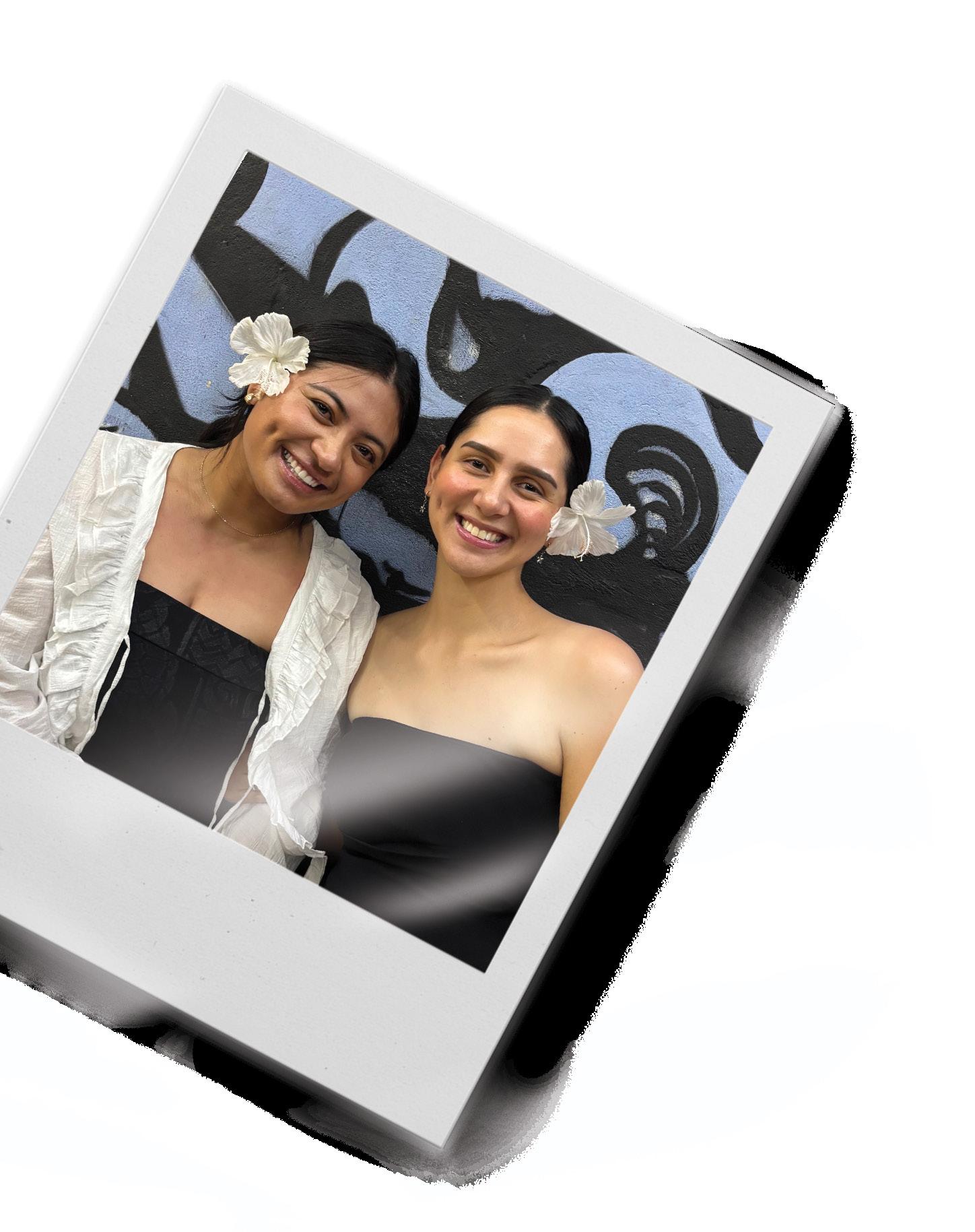
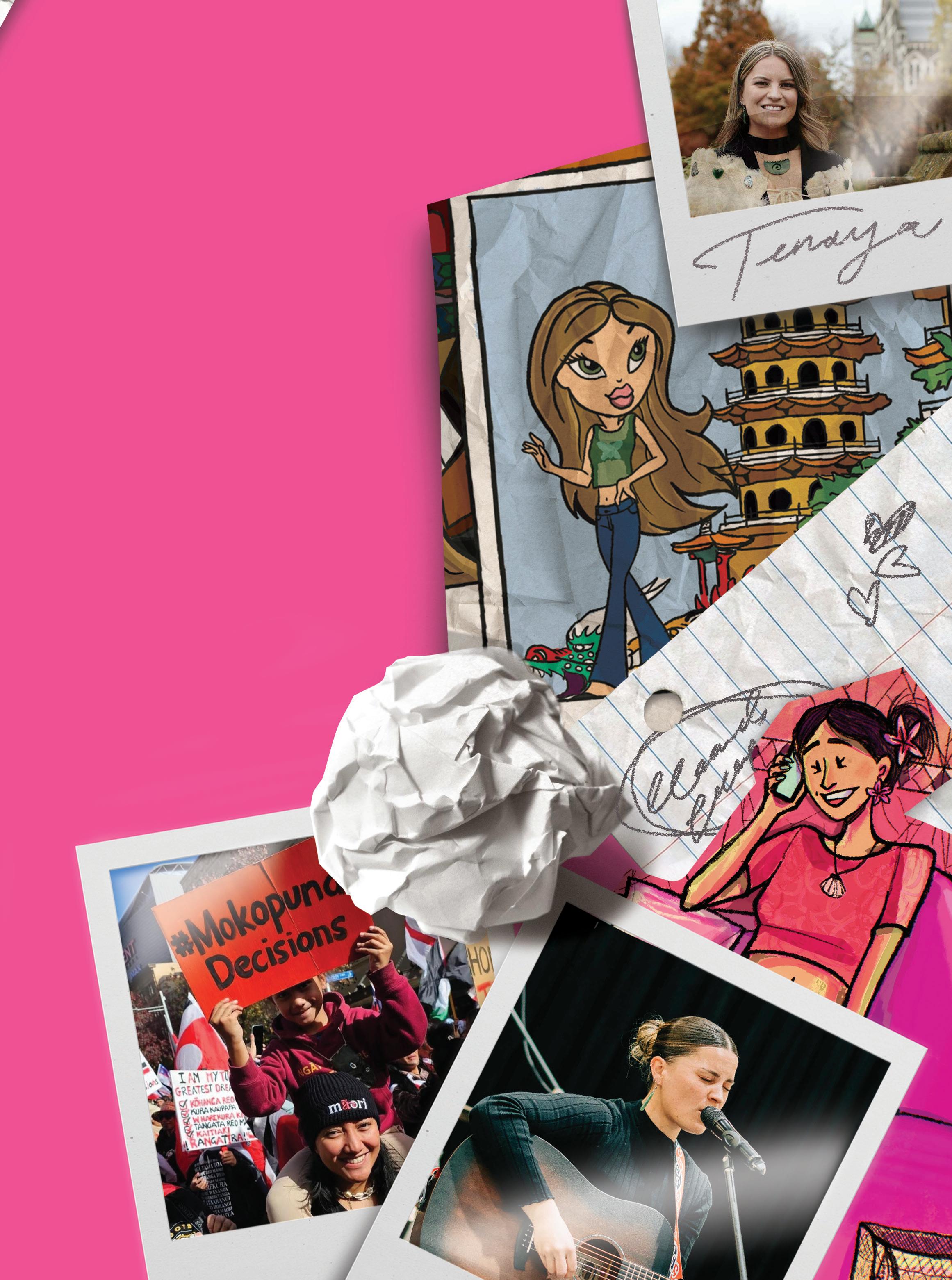
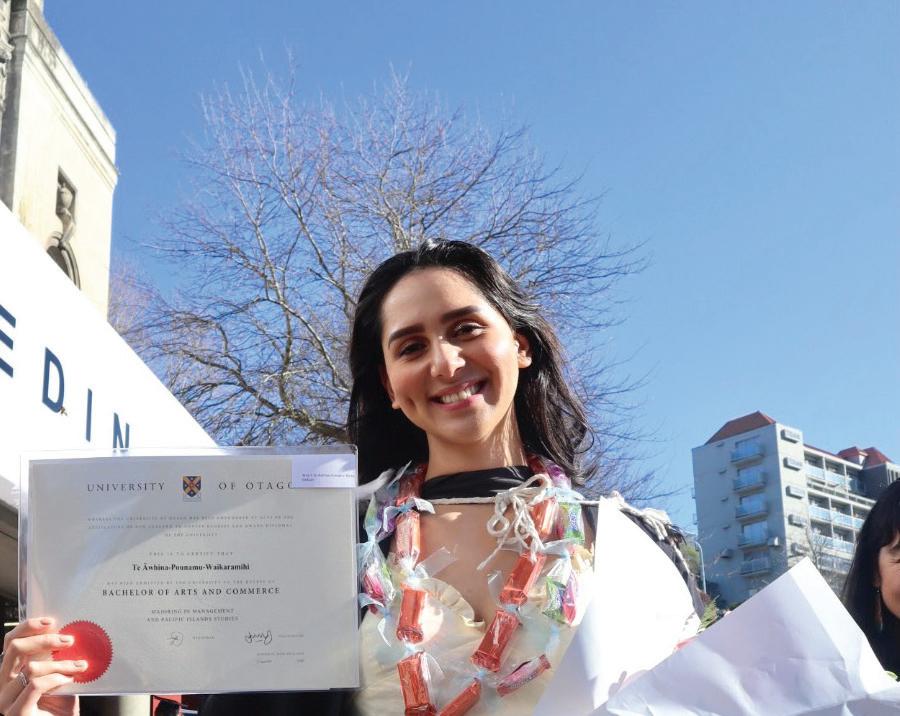
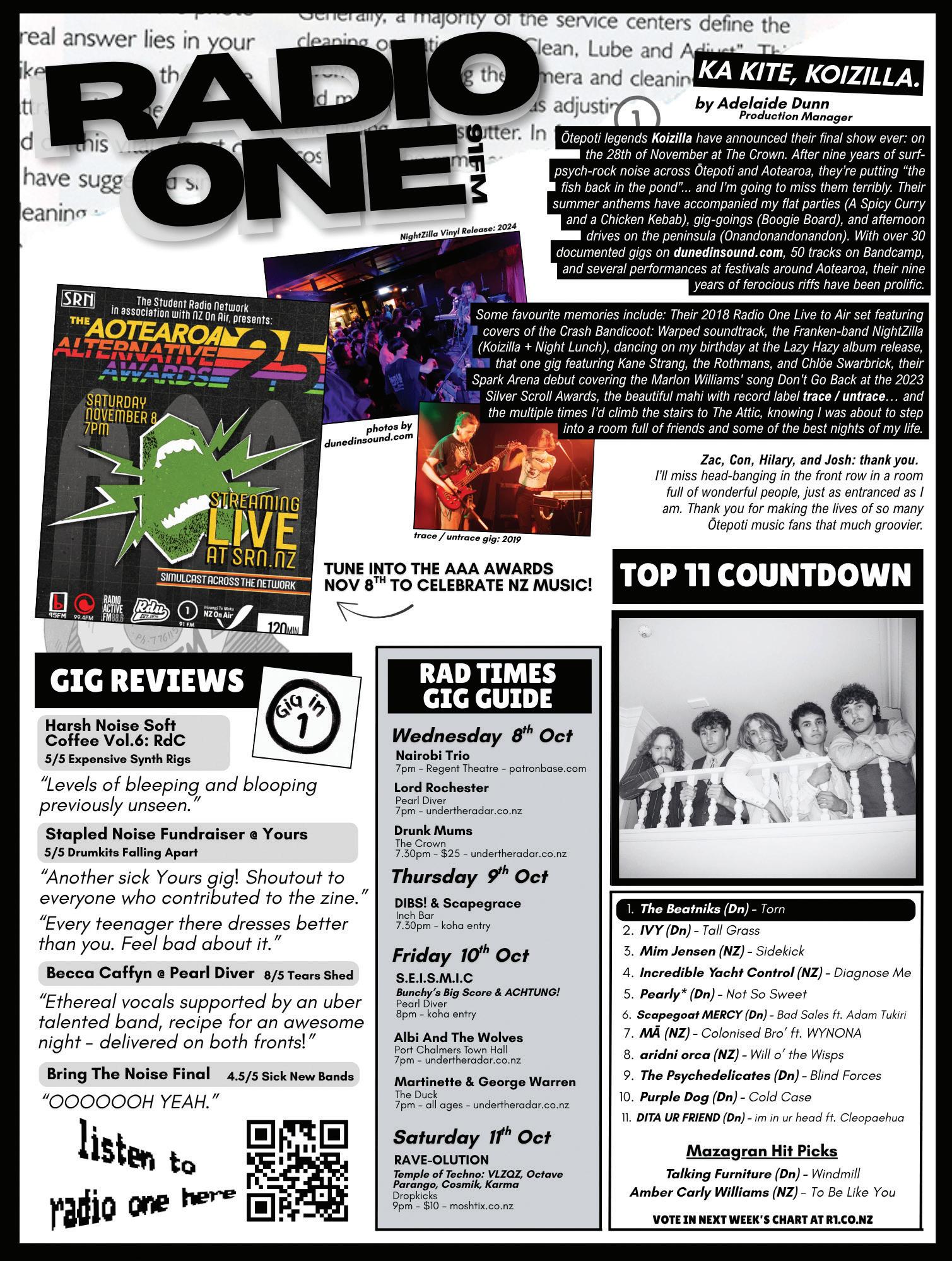
Subpar Analogue Music is the latest brainchild of Mario Girardet (of Caribou) and Jeremy Kinley (of The Audio Visual Drop Kicks). The music collective encompasses music recording, events managing, and flat gigs – tied together by a shared ethos of community. Mario and Jeremy outlined a new vision for the Dunedin music scene – one built on collaboration and good old Kiwi DIY ingenuity (and humility in being a little subpar) to contribute to a new era of the Dunedin Sound.
Mario and Jeremy clearly have a passion for music. Parked up on a couch with Critic Te Ārohi, they enthusiastically bounced off each other for an hour about their latest project. Turning to Critic at one point, Mario said, “See, this is a topic we could probably talk about for hours. It’s what we do.” It’s how they came up with the idea: “This is what made us realise we should do this together – this is just what we talk about every day.” Jeremy nodded with a grin. A core component of their “new” Dunedin Sound is a commitment to lo-fi (low fidelity) sound. Recording on physical tapes and CDs, Mario and Jeremy aim to lower the bar of entry to getting recorded (no need for fancy recording studios) and recapture some of the prolific Dunedin lo-fi scene from 30-40 years ago. Mario named Chris Knox as one of his idols, whose path he tries to follow with lo-fi, and brought a “bare bones style that lets the emotions shine up more”. For Jeremy, it was Mac DeMarco. In an increasingly commercialised world of music production, both felt that the slick tracks feel less personal. “The thing I love about lo-fi is it's like so personal,” Jeremy said. “You can feel people's voices and their emotions a lot more. You can feel each twist of each knob. It's just a lot more human, I think.”
The pair emphasised the need for community when it comes to music-making. “Dunedin's got a really good music community, but with music there's a little bit of an attitude [of it being a] wild west,” said Jeremy. “You do it all yourself, you don't share secrets or collaborate.” Their attitude was the complete opposite. “If you all collectivise and treat yourselves communally, then you're gonna be 10 times stronger than if you treat yourself like the individuals,” Mario added.
Part of the scope of the project is to help new bands get a leg up, utilising their experience and equipment to do more than just record. “We're really keen on getting younger bands along and, you know, supporting people that are getting started,” said Mario. Both were able to point to people who helped them early on. Jeremy shouted out Max Came of Hot Sauce Club and Velvet the Label, and Mario shouted out Jeremy. To them it was important to pass those favours on to new groups. Jeremy added, “It's just cool to see that culture perpetuated. I hope that that continues for the next five and ten years or however long, y’know. People play music here. I hope people still look out for each other.”
Thanks to their shared experience in the local music scene and an accumulated collection of music equipment between the pair, they’ve become the go-to for organising events with bands. It was difficult to pick the best of the bunch, but Mario named his own Flipper Fest as one example, a series of gigs that he’s run the past couple of years to raise money for the Yellow-Eyed Penguin Trust. Flipper Fest kicked off with a backyard flat gig on Harbour Terrace in August that at the last minute had to be moved across the road due to a gazebo collapse and rain. But that’s where Mario and Jeremy come in: “When the show goes wrong, we are there to fix it.”
Only having launched in the week before our interview, the response has been huge. Subpar are currently working with a handful of local bands already. “It’s been really heartwarming to see the music scene come together to support us in the way that it has, for sure,” said Mario. “I think it’s really exciting.” Although things are winding down in the local music scene as the semester nears its end and students lock into the exam study grind, the two are hoping to run one more gig before the year closes. “Keep your eyes peeled, I guess, for that one,” said Jeremy. Outside of that, there are plans for lots of things next year.
If you want to do analogue recording, CD tapes, a flat gig or get involved with Subpar Analogue in any way, either DM them @subparanalogue on Instagram or email them at subparanalogue@gmail.com.
ByViaHooks
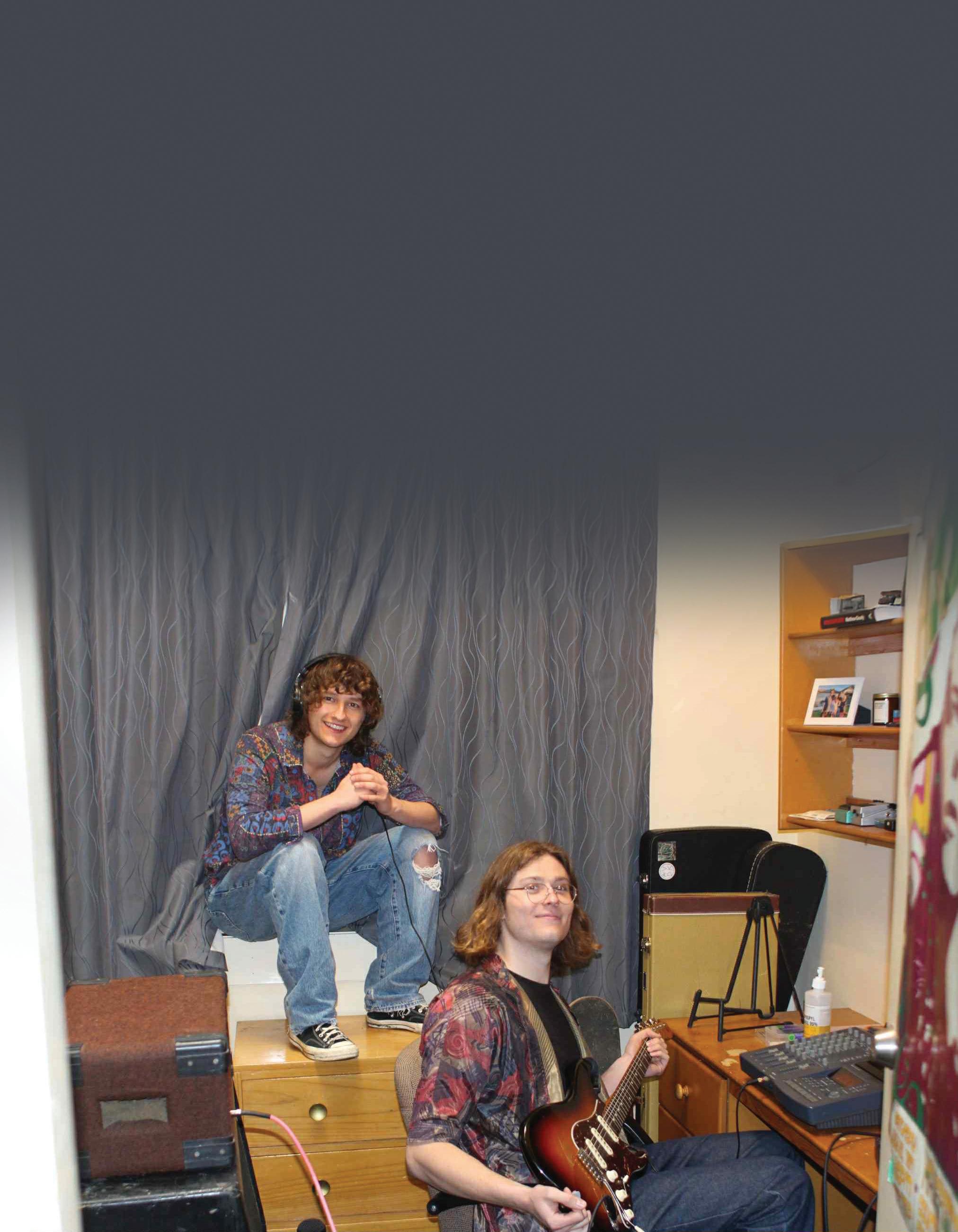


BY Joan of Rark
At this point in the year I’m struggling to think of booze I haven’t yet reviewed, so I’ve taken to perusing the aisles of Leith Liquor and squinting at the shelves to see if anything’s unfamiliar. And well well well, what do we have here? New-to-the-scene Franky’s, yet another fizzy-drink RTD – this time coming in Lemon Crush (boozy lemonade) and Cola Lime (boozy coke).
To start with the good, the Cola Lime is fucking delectable. It’s like an alcoholic Karma Cola, but with lime. The way it dances on your tastebuds is akin to a romp in the meadows with my lover before he ships out for World War II. Seriously, this drink makes me feel like how Noah must have felt standing on the porch of that house in The Notebook, but without all the dementia and dying. Franky’s Cola Lime is so lovely and refreshing that it almost makes me forget that time my dad left.
Moving onto the less good one (but certainly not bad) the Lemon Crush flavour is like a better Monsuta, but burpier and therefore less scullable. A few points removed from it for that. But overall, it manages to clear up the taste of “stinky urinal cake laced piss” of the aforementioned Monsuta. Instead, it pleasantly tastes like a freshly squeezed lemonade you’d get at a farmers market jaunt with your grandparents whilst your parents are out on a Valentine's date. This particularly comes into effect when you have had more than two in a half hour. The foam builds and it gets a bit gnarly, but WHEN I SEE THE FOAM I’M IN MY ZONE (hello, niche community). This is certainly a summer sipper, the ultimate companion to a sunburn and sand between your toes.
Honestly, this stuff is kinda fire. This beautiful duo of bevs are so awesome we ended up missing the Baaa Bar pub quiz cos we didn’t wanna put them down – and that’s saying something. The flavours are very old school and boy, oh boy, do I fuck with that.
Taste: *fire emoji*/10
Scullability: 6.7/10
Pairs well with: Forbidden love, house building, forgetting the old dude gets dementia at the end of The Notebook
Hangover Rating: 5/10 (worth the mid-week piss-up)
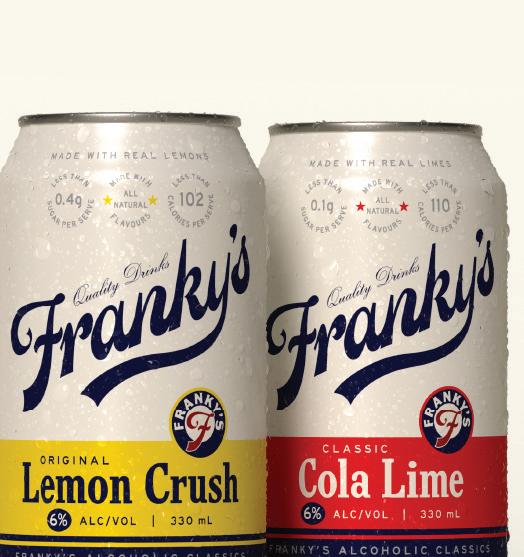
Picture yourself sitting on a beach in Euro summer, sunkissed with an aperol spritz in hand. A mental image that can only be improved by an epicly tasty mediterranean meal… cue Kofta Kebabs! These are super easy to make and quite frankly, delicious. You can alter this by using fresh vegetables and hummus to top, or have a go at the salad I have suggested here. Make this healthy meal for the flat and chuck on Mamma Mia! while you’re at it x
(I go for whatever is cheapest at the supo on the day)
MINCE FLATBREAD
500g beef/venison mince
1 egg
1 onion (grated or finely chopped)
3 garlic cloves (finely chopped)
1 beef stock cube (optional)
1 tsp ground coriander
2 tsp ground cumin
1 tsp ground paprika
½ tsp ground cinnamon ½ tsp chili flakes (optional)
Salt and pepper
Lebanese bread (purchase from Yogijis!) Oil
(you could use pita breads or wraps, feel free to alter according to what you have and prefer)
By Ruby Hudson
Step 1. Begin by making the mince mixture. In a large bowl add the mince, egg, onion, garlic, stock cube, spices (coriander, cumin, paprika, cinnamon, and chili flakes), and some salt and pepper. Mix by hand until everything is fully combined.
Step 2. Place a large frying pan over medium heat with about 2 Tbsp oil in the bottom.
Step 3. While the pan heats up, take one of the Lebanese flatbread/pitas, and spread the mince mixture on top. You want a layer of mince that
(feel free to add in any ingredientsother you like or what is affordable in seasontomatoes, capsicum, mint, parsley or olives would go hard!)
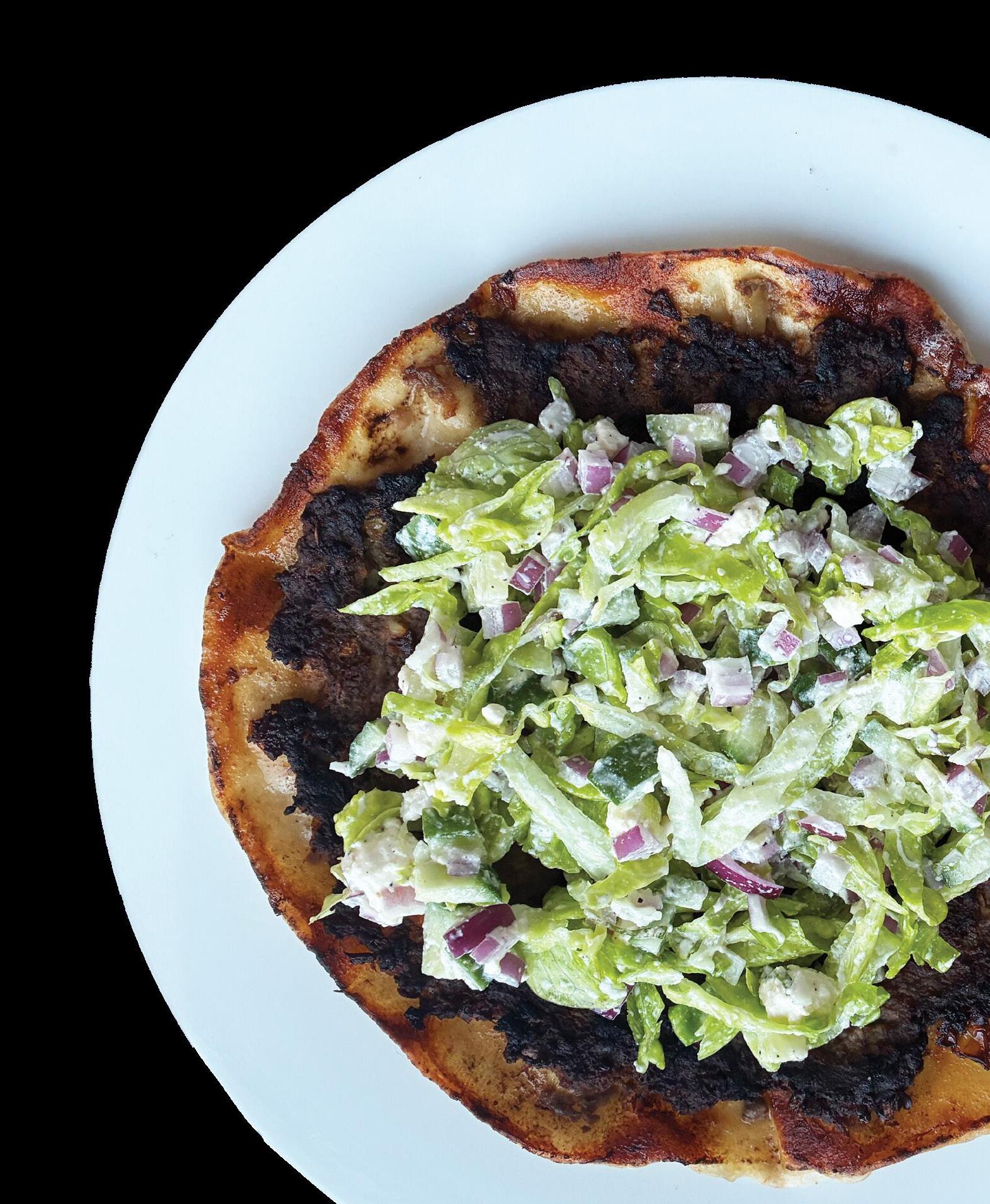
By
Enter the Enhanced Games. Essentially the Olympics on steroids (literally), this event is funded by three big time venture capitalists and has a huge team of doctors, professors, and lawyers involved. They will do state-of-the-art medical profiling, blood, urine, brain imaging, and genomic sequencing (what ever the fuck that means) to ensure that none of the athletes will be putting themselves in harm’s way just to swim a little faster.
Creating a whole new stage for the highly doped athlete is not only beneficial to the ones on performance enhancing drugs but also the clean athletes. It gives the world a chance to see the true capabilities and capacities of the human body, while providing the athletes opportunities for brand sponsorships and to make good money.
Right now, clean athletes are stuck in the no man's land of training their asses off, eating strictly chicken and broccoli, and still losing to some guy who claims he “accidentally” mixed horse testosterone into his morning smoothie. It’s like studying for weeks for an exam and still getting beaten by the guy who has the answers written on the inside of his arm.
Let's call it what it is: sports on steroids, turned into entertainment for the world. But hey, clean athletes get to keep their medals and their souls while the rest of us risk paying to watch some hopped-up-on-Tren powerlifter deadlift a Hilux. I
must admit, it is something I would pay to watch.
So I was all set to fly up to Christchurch – flights booked, outfits planned – all to see this guy I’d been chatting with. Two days before I’m meant to go, he suddenly gets cold feet. First, he asks me to shorten my stay. Fine.
I ask for confirmation if that’s actually what he wants. He says yes, then vanishes. Comes back later saying, “Actually, nah, don’t come at all.” Excuse me? You don’t cancel me like I’m an expired milk special at PAK’nSAVE
Well, at least I’m that bitch. I don’t cry, I multitask. So I simply text another guy in Christchurch. (Pro tip: always have a plan B.) And this one, bless him, actually sticks to the plan.
Sport exists on the principles of fairness, inclusivity, and integrity. Doping will undermine all of these, setting a concerning precedent for the future of one of humanity’s greatest pastimes. The Enhanced Games is just an event that will be a hobby for the rich – no inspirational stories of watching years of discipline pay off. It sets a dangerous precedent for athletes around the world, who may feel they need to dope to ever achieve their dreams of a world record. Then there are the ethical questions raised. While supplements and hormones may provide short-term gains, the long-term effects of injecting obscene amounts of things into you are likely not studied. Is it really ethical to potentially cut short a talented athlete’s career for a spectacle?
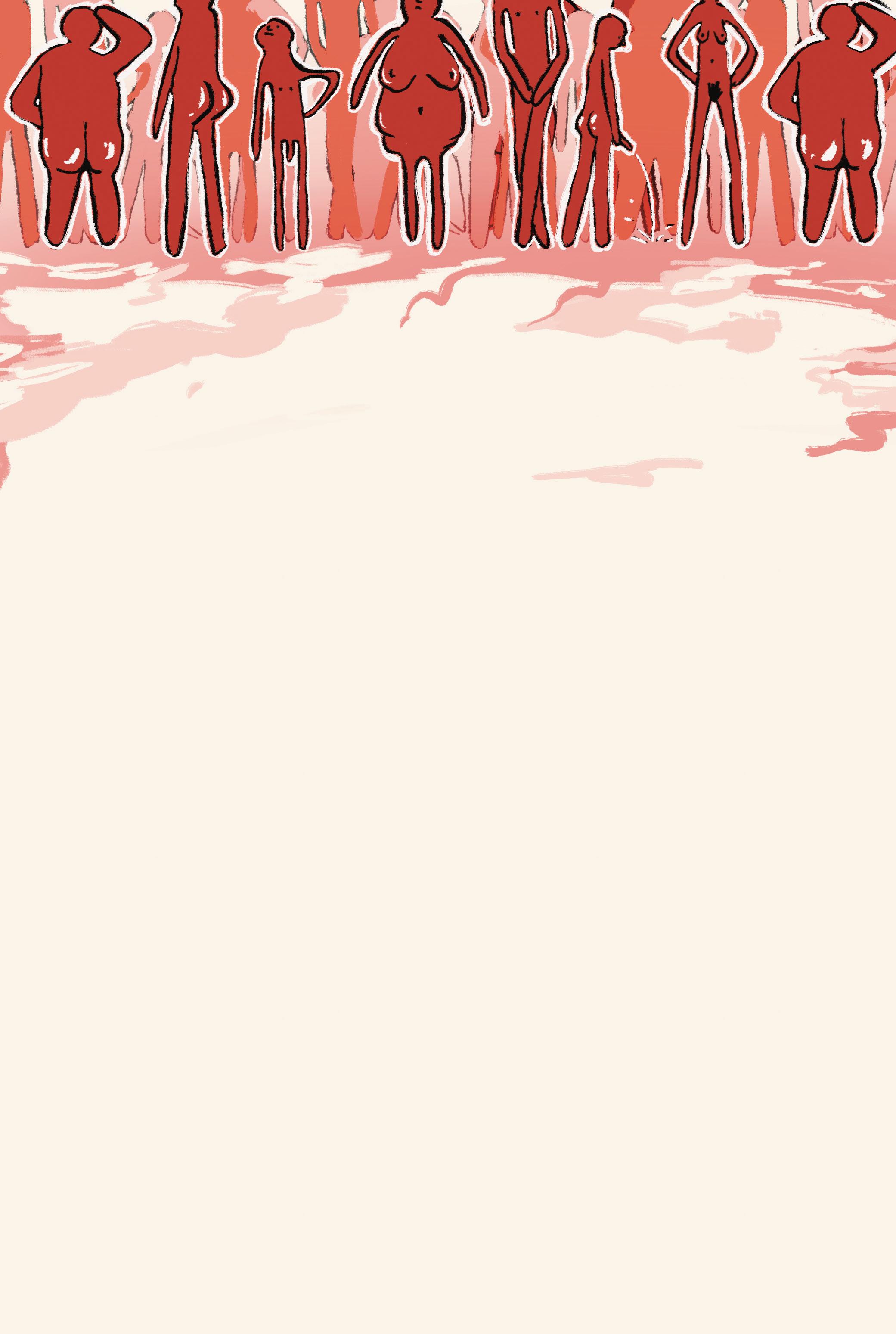
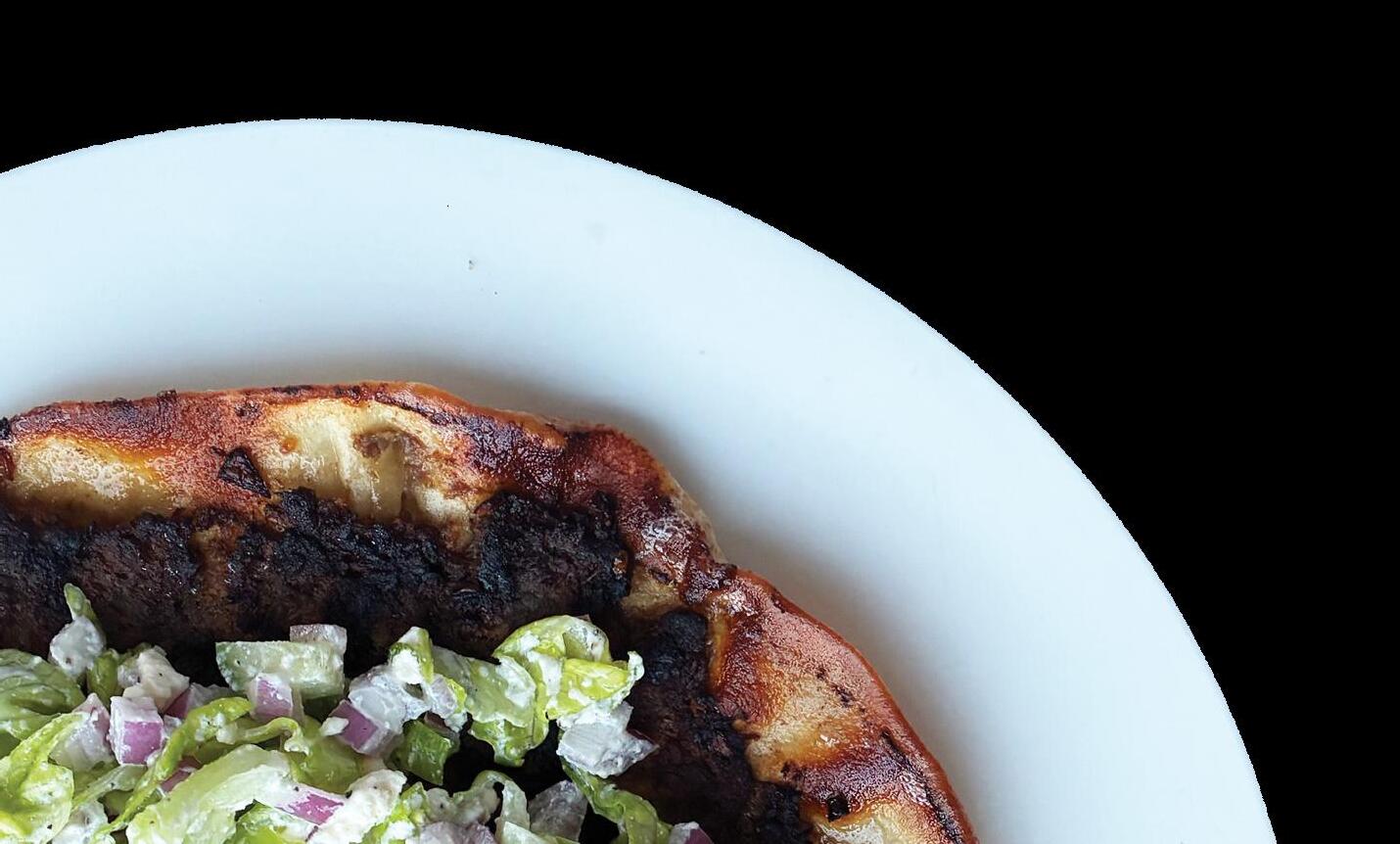
Fast forward to our first night. Things are going well until he mentions the hot bath. How lovely, except… he and his flatmates had already rinsed all the hot water. So what do we do? Boil. Every. Bloody. Pot. In. The. House. Kettle, saucepan, even a dodgy frypan got involved. We sprint up and down the stairs like we are getting ready for Hell’s Kitchen: Plumbing Edition.
After all that manual labour, we finally had our steamy bath, and let’s just say it ended up hotter than expected. Tub, sink counter, shower, you name it. By the time we were done, I reckon his poor flatmates were seconds away from booking therapy.
On the legal side of things, it’s a massive grey area as well. Despite ‘medical supervision’ being present, without sporting bodies who takes responsibility if an athlete dies at an event? Athletes who participate are likely to be blacklisted from their governing bodies for the rest of their lives. If you’re not willing to cut your sporting career short for five minutes of fame, it’s just an excuse for washed-up ex-athletes to get their five minutes of fame.

HAVE SOMETHING JUICY TO TELL US? SEND YOUR
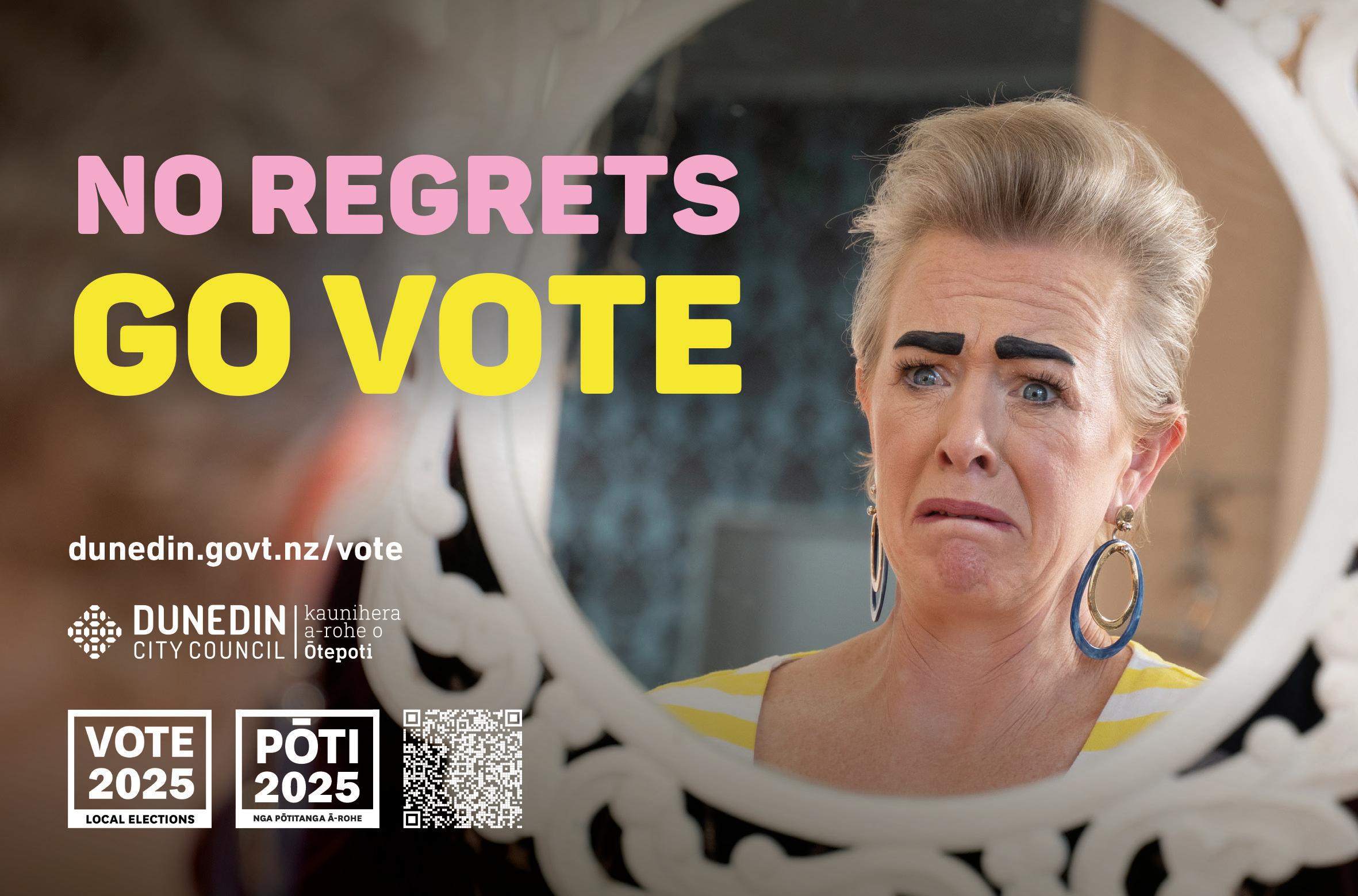
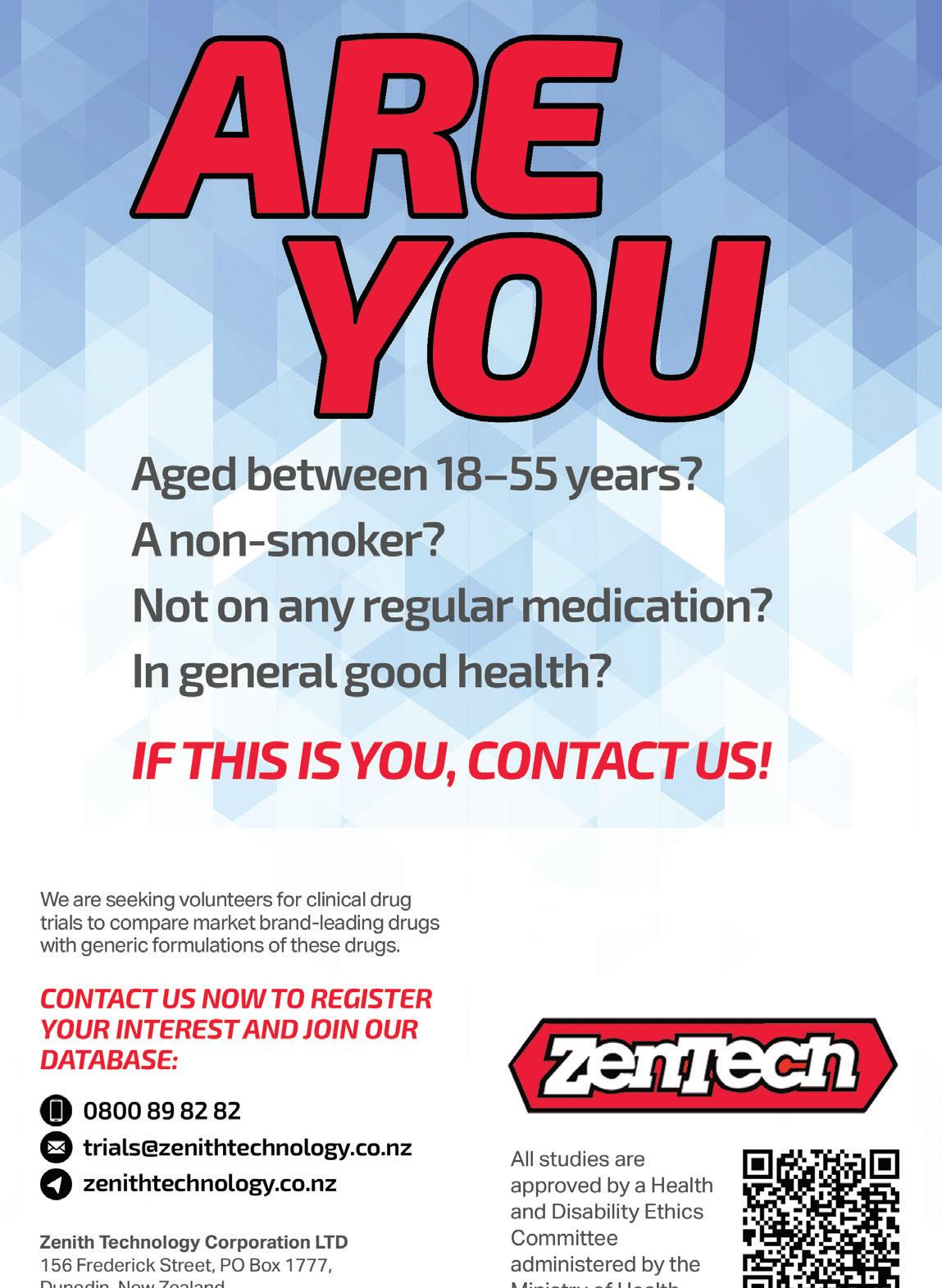


Your daydreams have been full of love, art, and a future where you don't live in your shithole flat. It is awesome to have hopes and dreams, but remember that the bed you dream in needs its sheets changed at least every month. And lately that has not been the case.
Task to tick off the list: Book your car in for a service
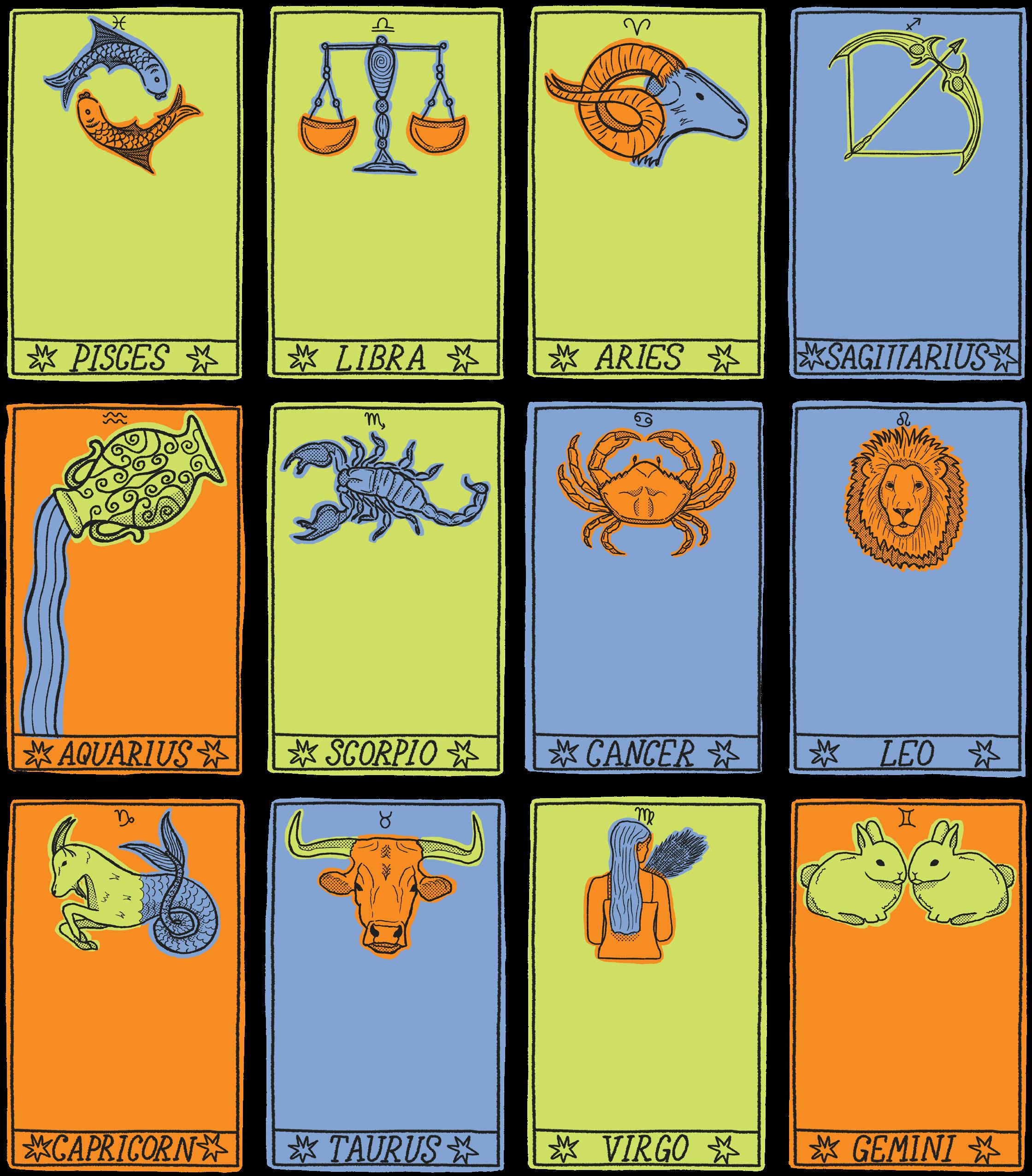
You are an ‘ideas’ kind of leader. To really make your mark on the world, you need concrete evidence that you actually follow through, and aren't just spouting off your every thought in the world. Because right now you are not looking like the best decision to be boss.
Task to tick off the list: De-ice the freezer
Indecision is your worst enemy. You need to stop making the bartender your therapist whilst you ‘decide’ between a vodka cran or a gin and tonic. Pick one. It's just a drink.
Task to tick off the list: Change your address on your content insurance
You have been sprinting through life like the Energizer bunny hopped up on Red Bull. Slow down and smell the roses. It is also not a waste of time to actually cook some good food, not just eating that microwave meal you have been obsessing over.
Task to tick off the list: Dust your skirting boards
The grindset is admirable, but I fear that no one wants to hear about the ‘5-year’ plan you made on Canva while high as a kite. Even your mum doesn't care.
Task to tick off the list: Clean the toilet brush holder
You’re not mysterious, you're just a bad communicator who has romanticised their whole life. Stop confusing a ‘vibe’ with ‘a lack of emotional maturity,’ it will make everything a whole lot easier to understand.
Task to tick off the list: Buy a new pack of pens
You are feeling really prepared. The fortnight has sent many challenges your way, but you know that the final battle (exams) is only a couple weeks out. Just keep on keeping on and all will be well.
Task to tick off the list: Write that ‘thank-you’ card
Harry Styles just ran a marathon faster than most normal people. Surely that shows that you don't have to live your life as a onetrick-pony. You can adapt and change paths, even if you feel like you are too far down the road you're on.
Task to tick off the list: Put your artwork on your walls
You should be proud of the work you have been putting into being less of a diva, and a better person while on the piss. While you may not rember most nights out, this is your reassurance that you are kind, you are beautiful, and you are abso-fucking-lutely funny while on the booze.
Task to tick off the list: Create a new season playlist
It's time to do what Tauruses do best and take the bull by the horns, and face your fears head on. Whether that is finally putting your foot down with that person who just can't seem to take no for an answer, or just opening that mystery lunchbox that has been under your bed since last semester. Just fucking do it.
Task to tick off the list: Call your Aunty
Stop organising your notes. It's not productive and you’re really just trying to distract your racing mind from the one thing it should be doing: fucking studying that degree you pay a fuck tonne of money to do every year.
Task to tick off the list: Remove enemies off of Snapchat
Your double life of ‘serious academic’ and ‘club rat’ is finally catching up to you, so stock up on those vitamin Cs and get ready for an absolute cunt of a sore throat. Don't worry, once exams are done you can go home to Mum’s flu remedies.
Task to tick off the list: Unsubscribe from your forgotten free trials

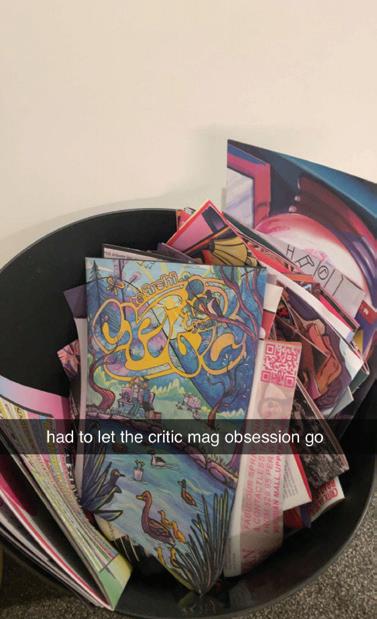
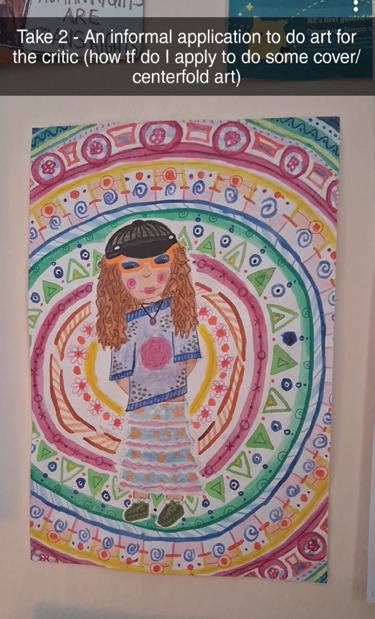
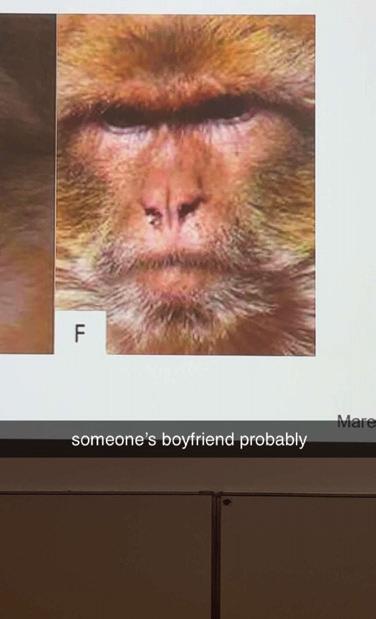
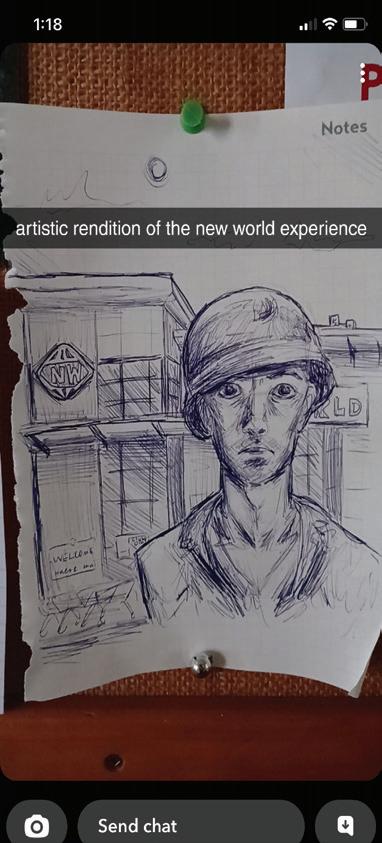
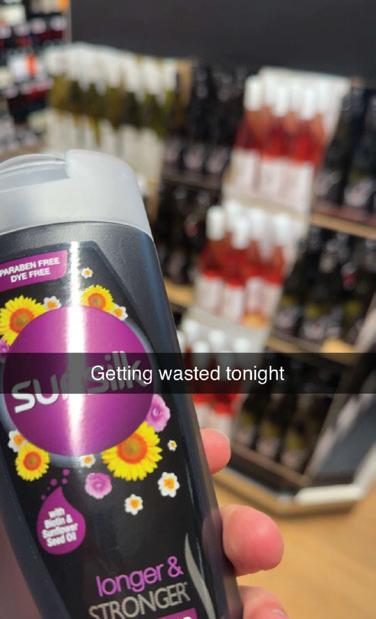
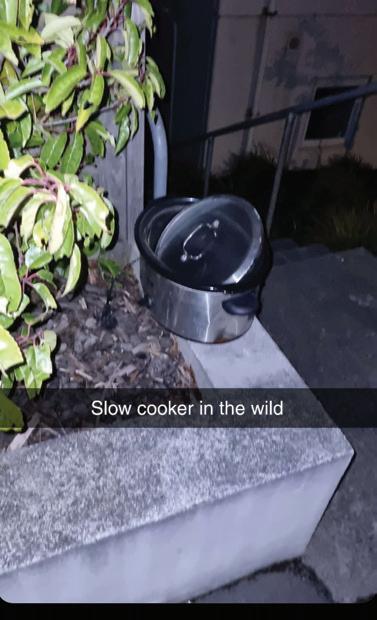
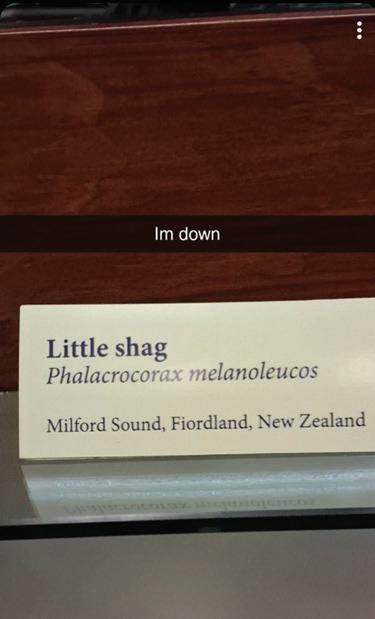
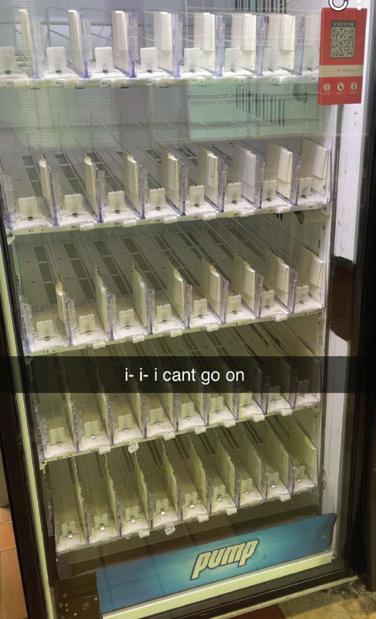
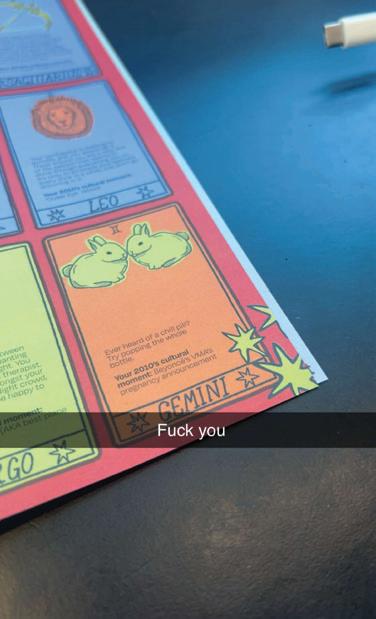
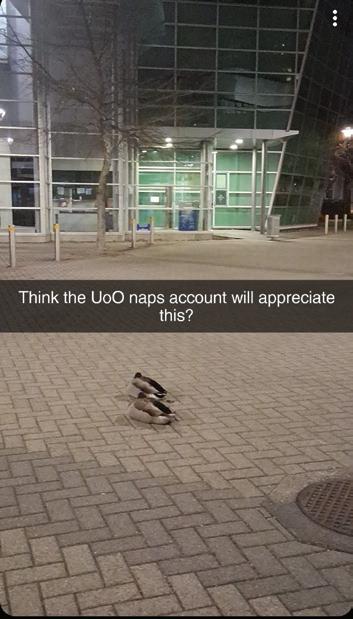

Kia ora peeps,
It’s your 2026 President here. Thanks to everyone who voted in the OUSA elections. We had our best voter turnout in five years, so a huge thank you to all that turned out.
Congratulations to all the candidates that ran for the Executive. The campaigns were competitive and creative, making this election one of the most exciting in recent times (biased, ofc).
Throughout the campaign, I was constantly reminded of the issues that Otago students are facing. Cost of living, the state of flats in North Dunedin, and the need for student bars. I’m not going to pretend I can fix these huge issues overnight, but I promise that I will push hard and do my best to improve student life at Otago.
While I only won by a razor thin 52.5% majority, I will be representing all 20,000 tauira, whether you voted for me, someone else, or if you didn’t vote at all.
Your 2026 Executive is ready to get stuck in and work for you. If you have an issue or idea, flick me an email at finance@ousa.org.nz this year, or next year hit me up at president@ousa.org.nz.
I can’t wait to get underway. 2026 is going to be big. Let's make it count.
Daniel Leamy OUSA President-Elect
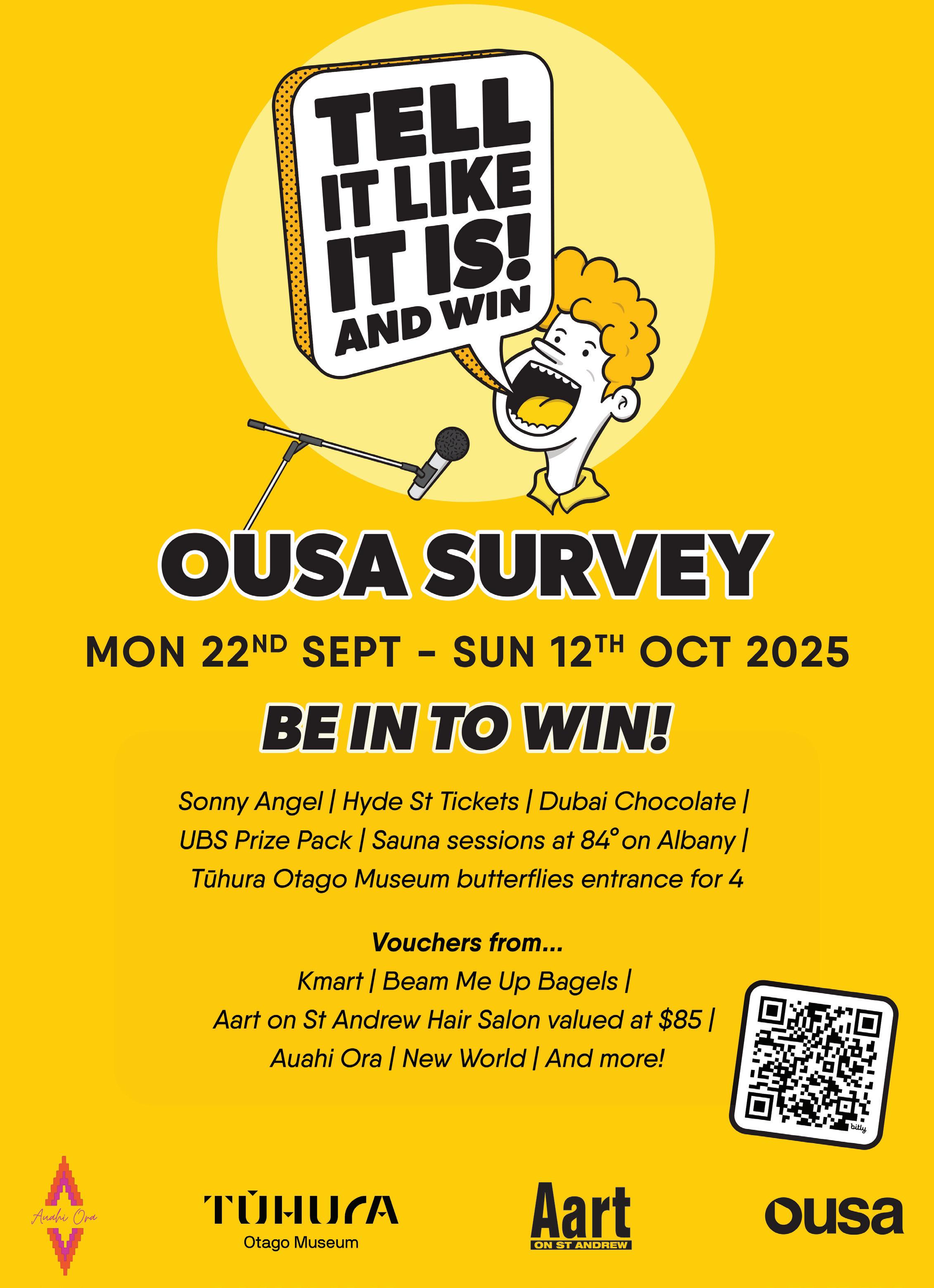
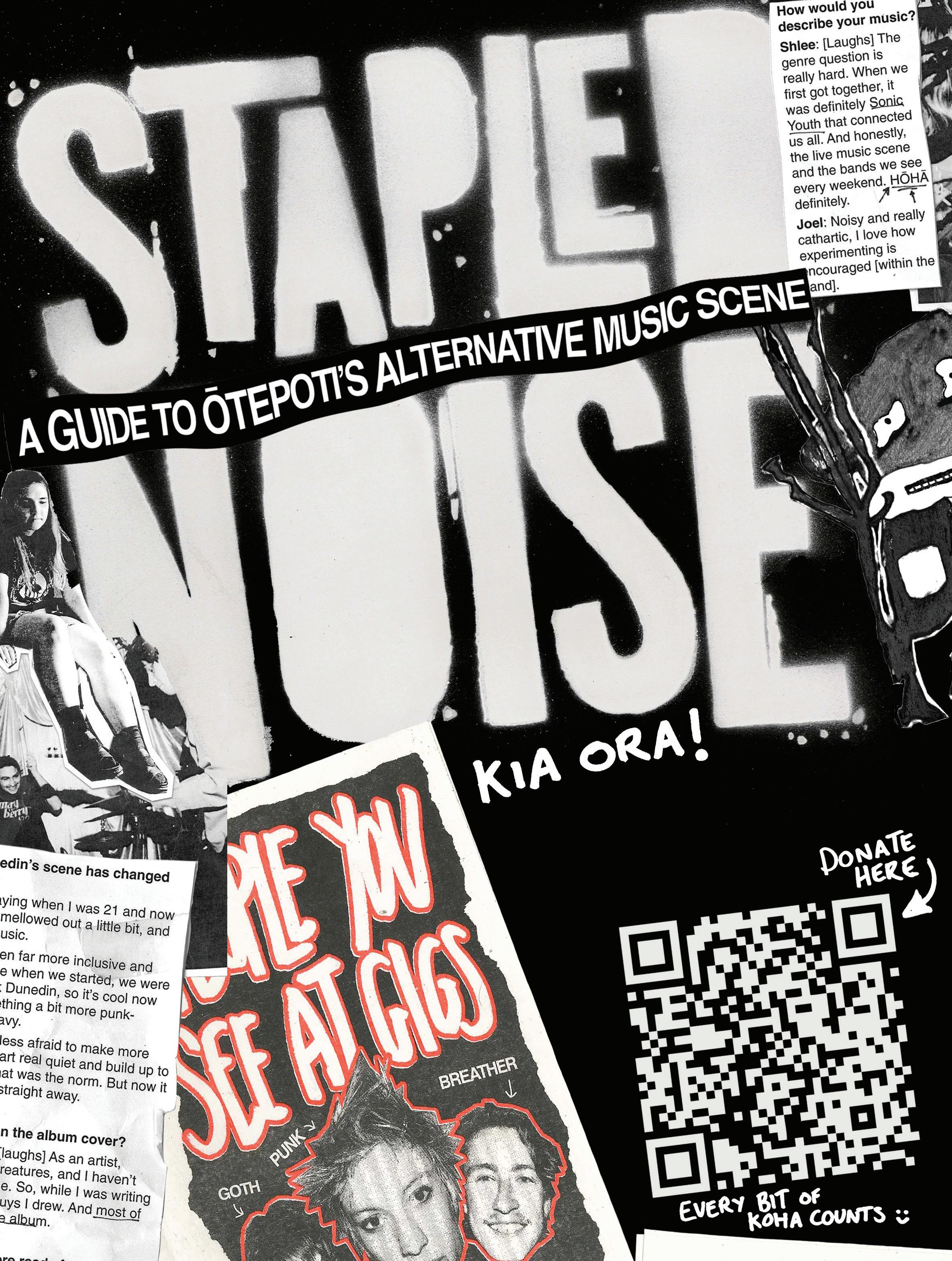
Ōtepoti's music has always been a prominent part of the local culture. Recently, it’s been making a spectacular resurgence with the return of the punk/grunge tone and all-ages scene – and the passion is growing.
Stapled Noise is a not-for-profit zine capturing the latest wave of sonic artistry in Dunedin, serving as a handbook guide for newcomers to the scene.
Stapled Noise is the creation of Ash McFarlane, an up-and-coming Dunedin graphic designer, merging the aesthetics of local music and the DIY zine ethos. Ash’s vision is for its mass distribution across the University of Otago campus, local venues and cafés, making music accessible to all.
For this project to make its intended impact, it needs to be printed.
Stapled Noise is 100% dependent on fundraising, as it will not create any monetary profit. Whatever money that can be made will go directly to covering production costs, which includes the paper stock, printing, trimming, and binding. Any contribution counts – here’s to a new wave of the Dunedin Sound.